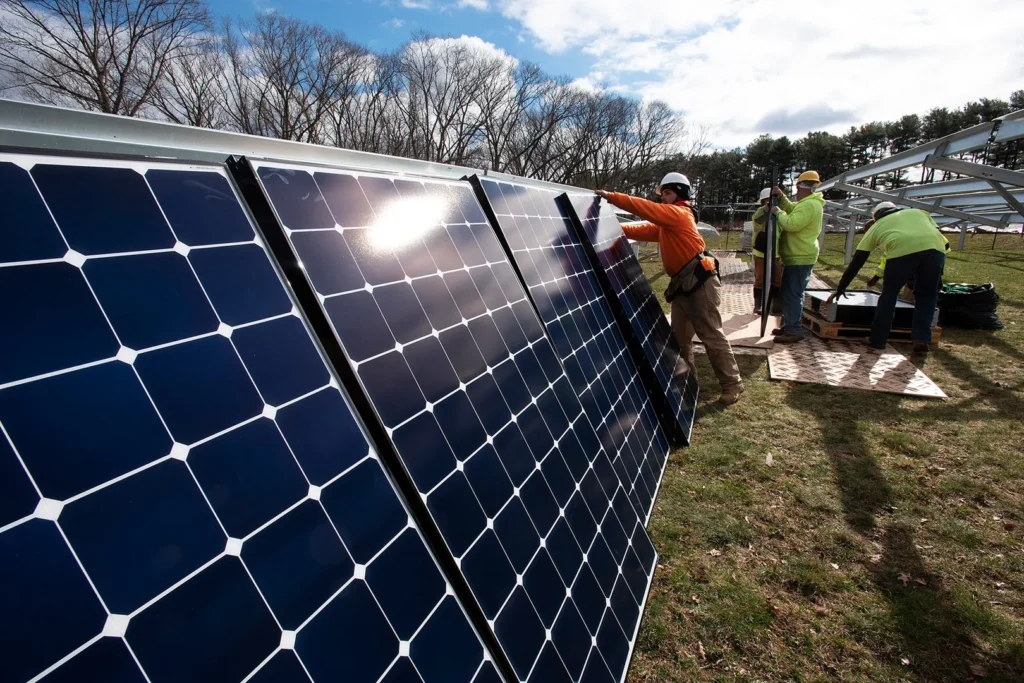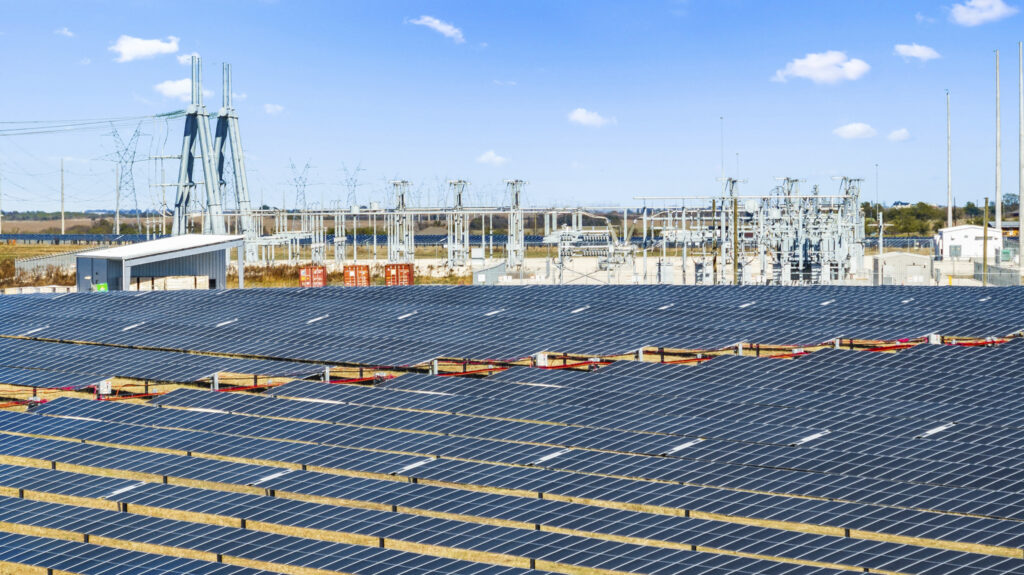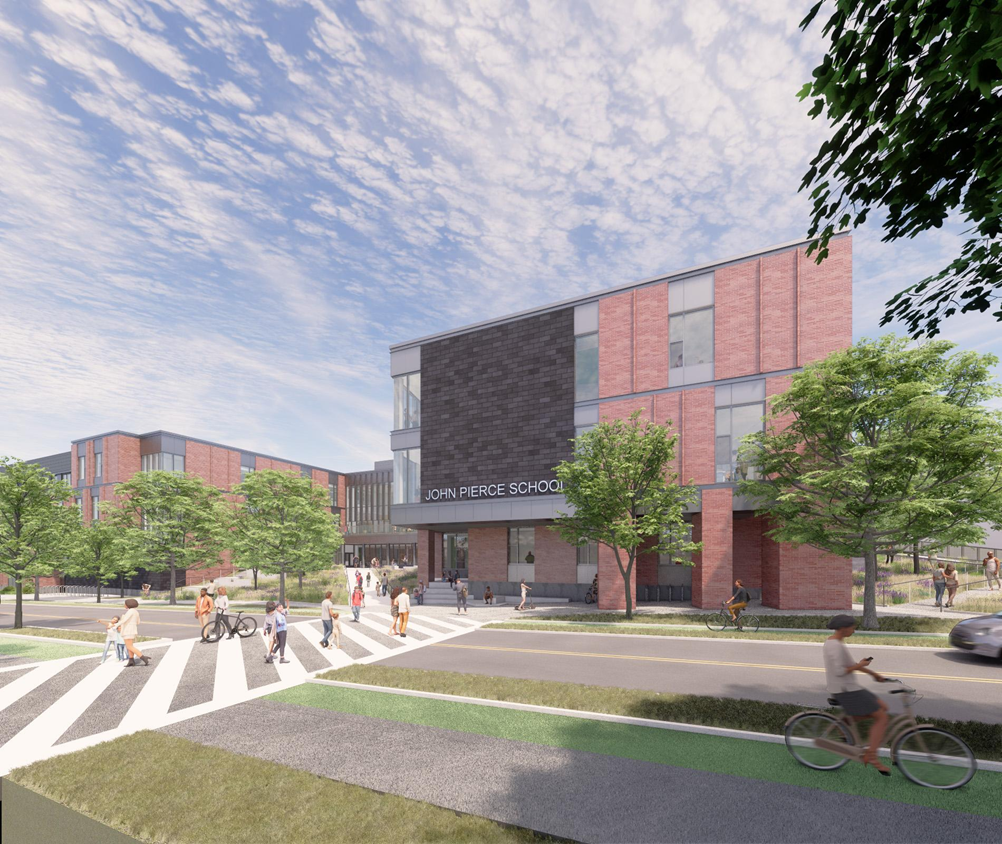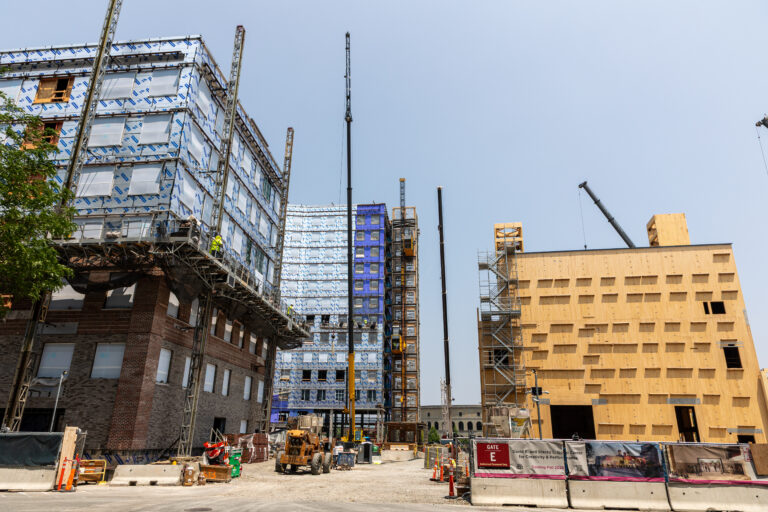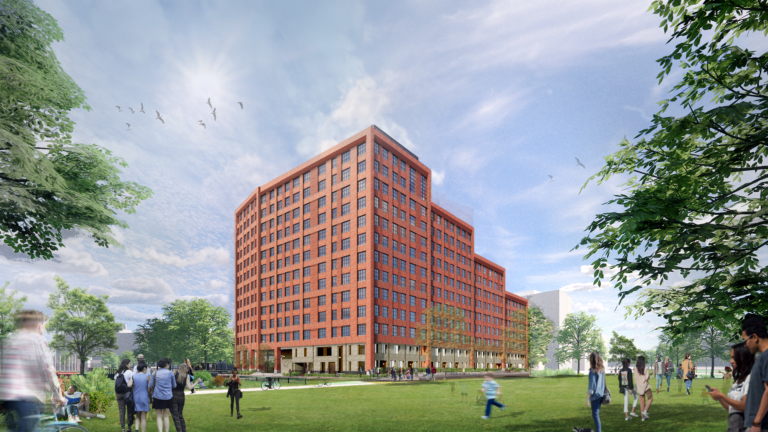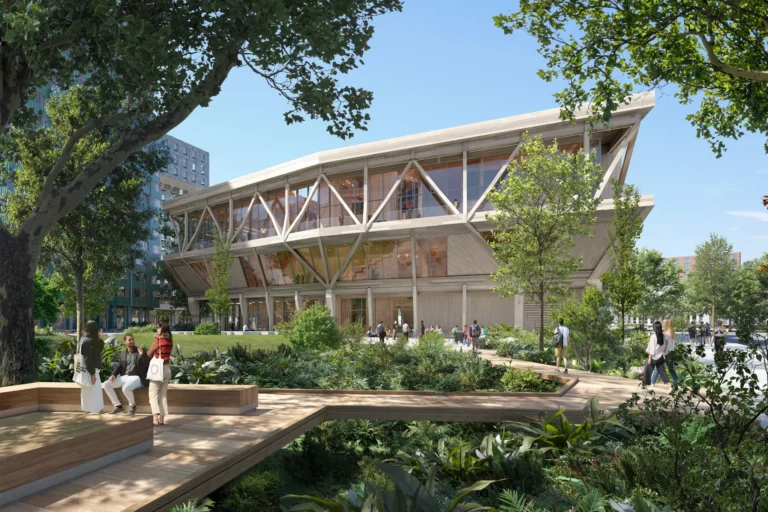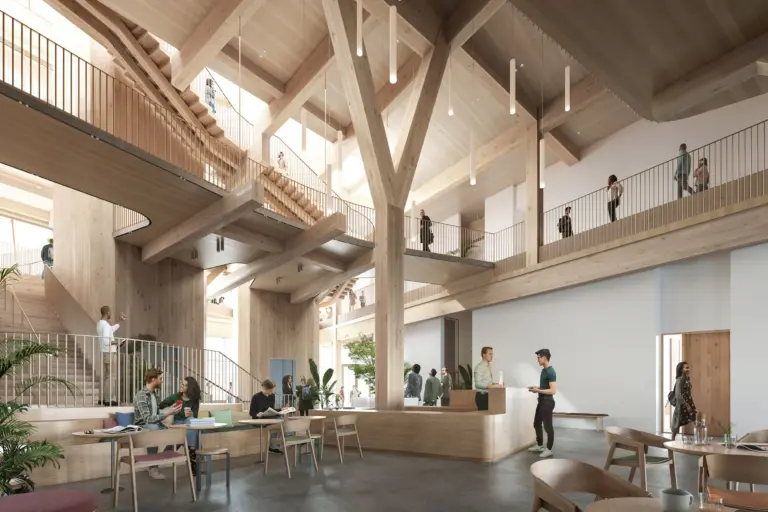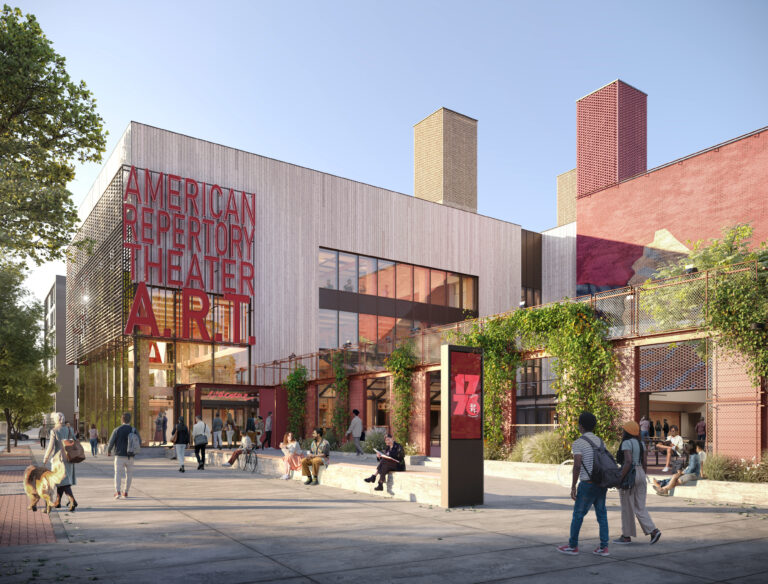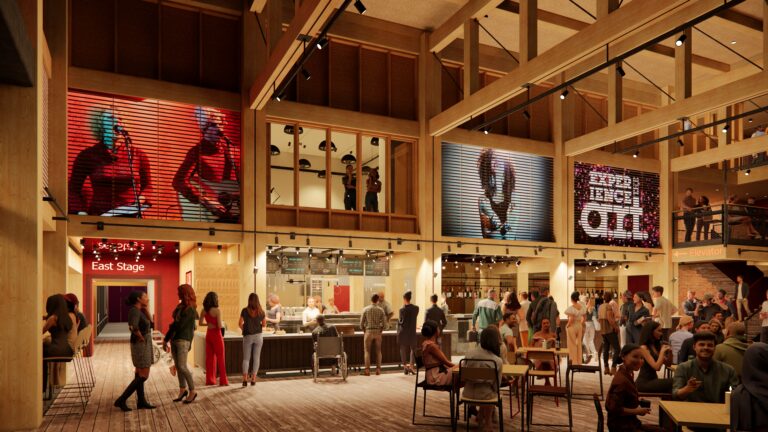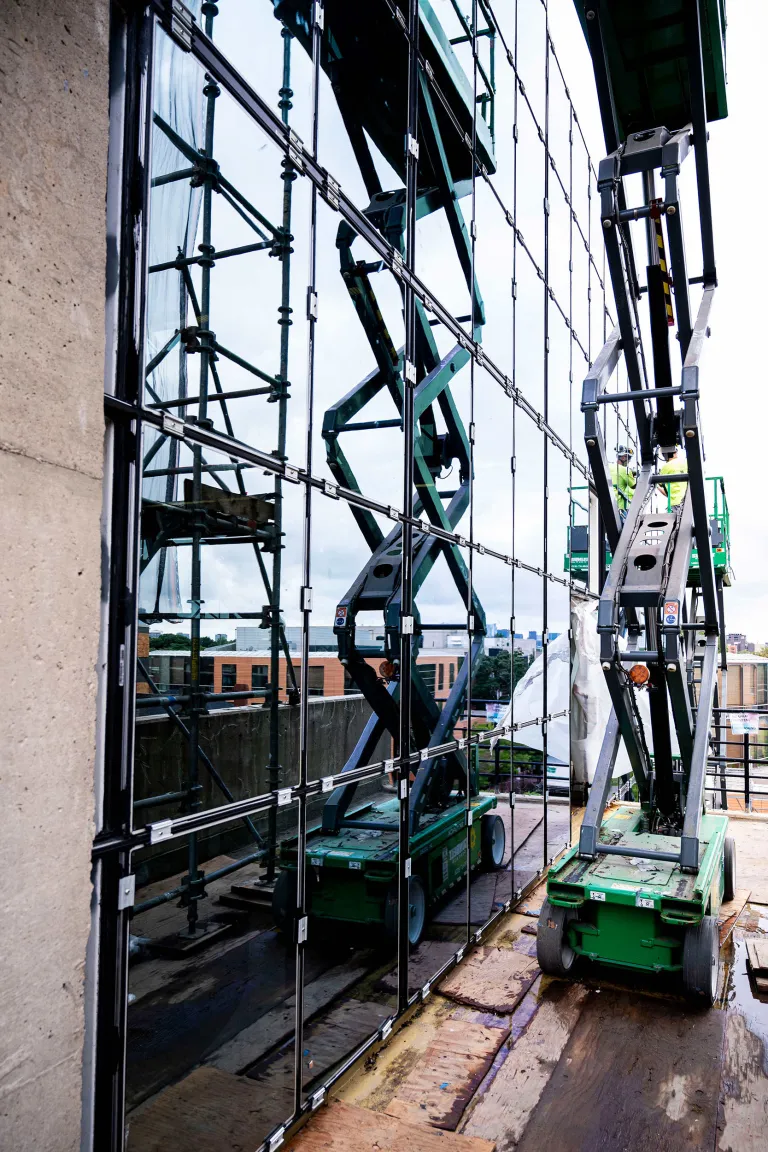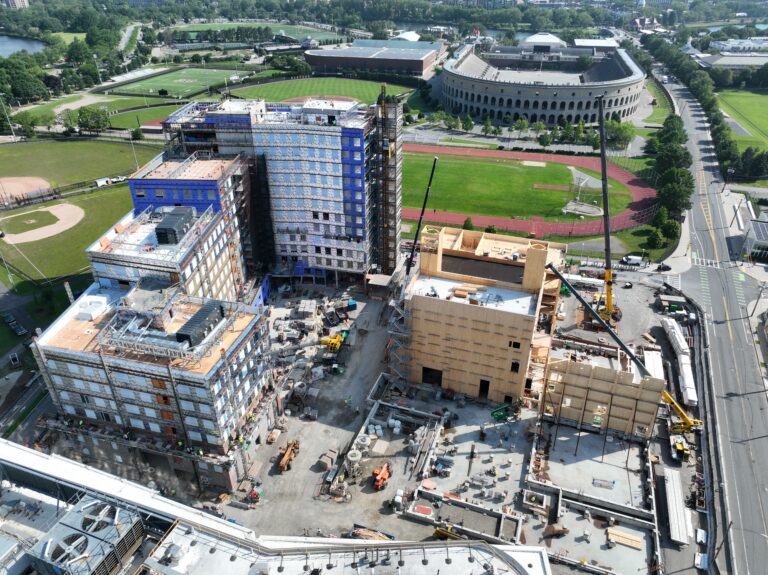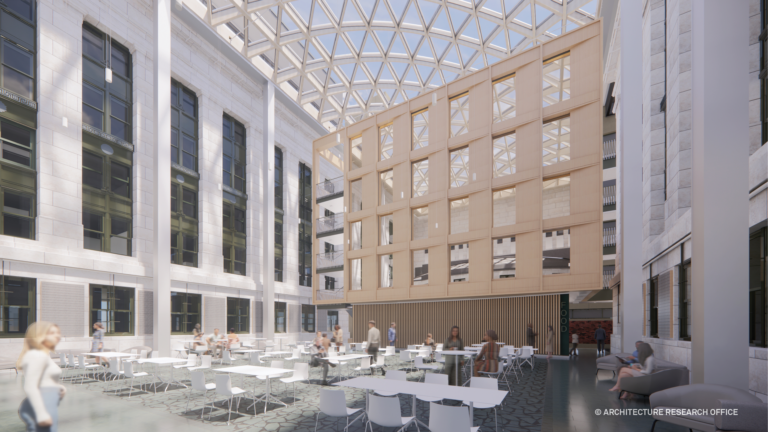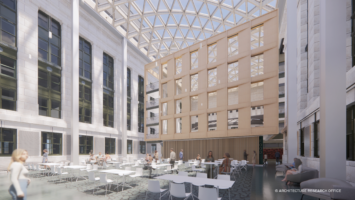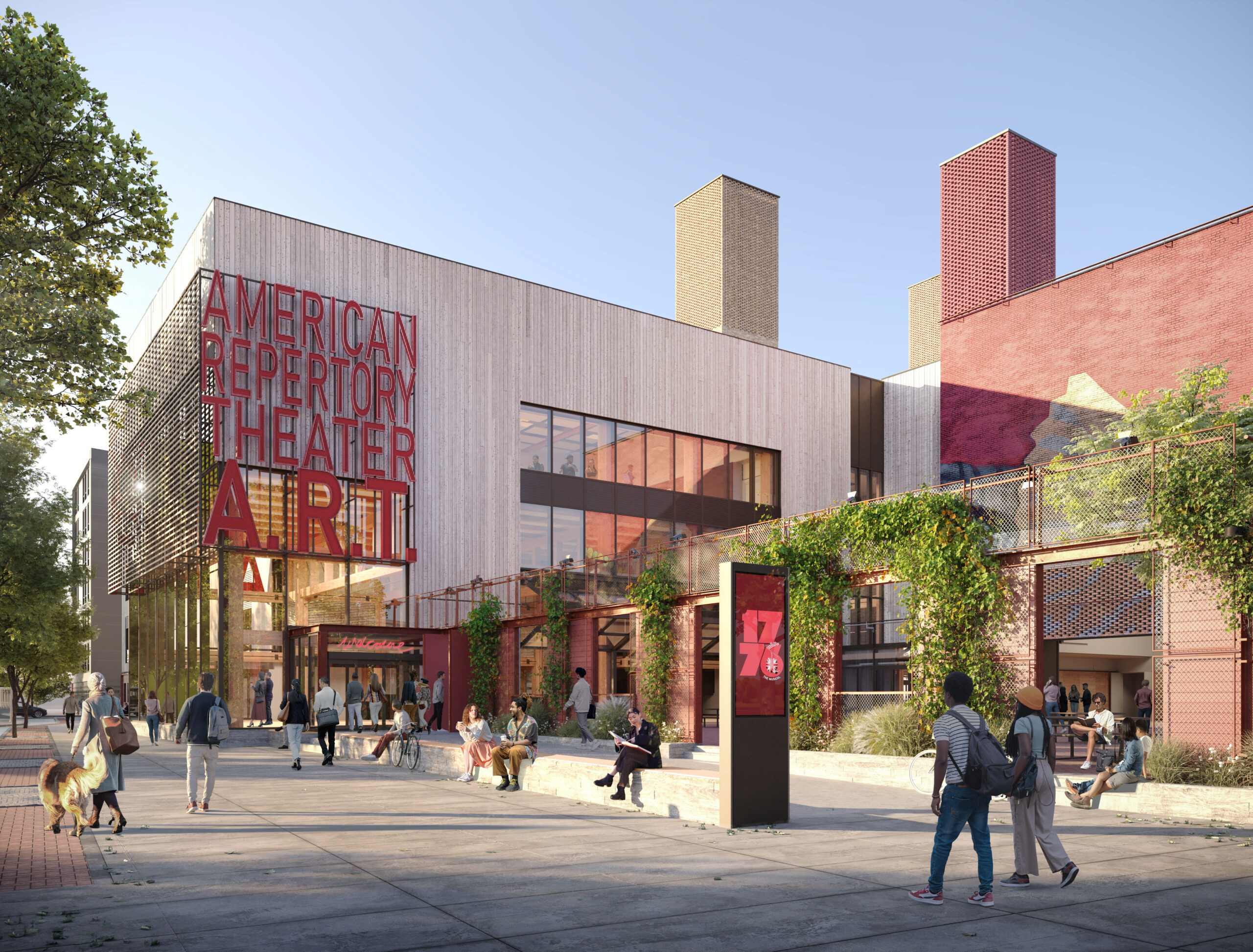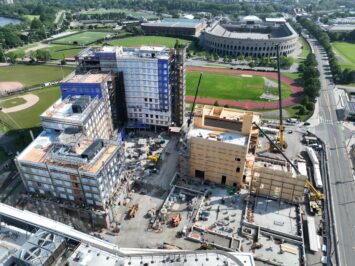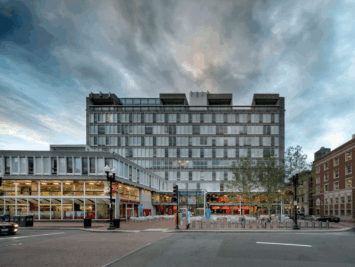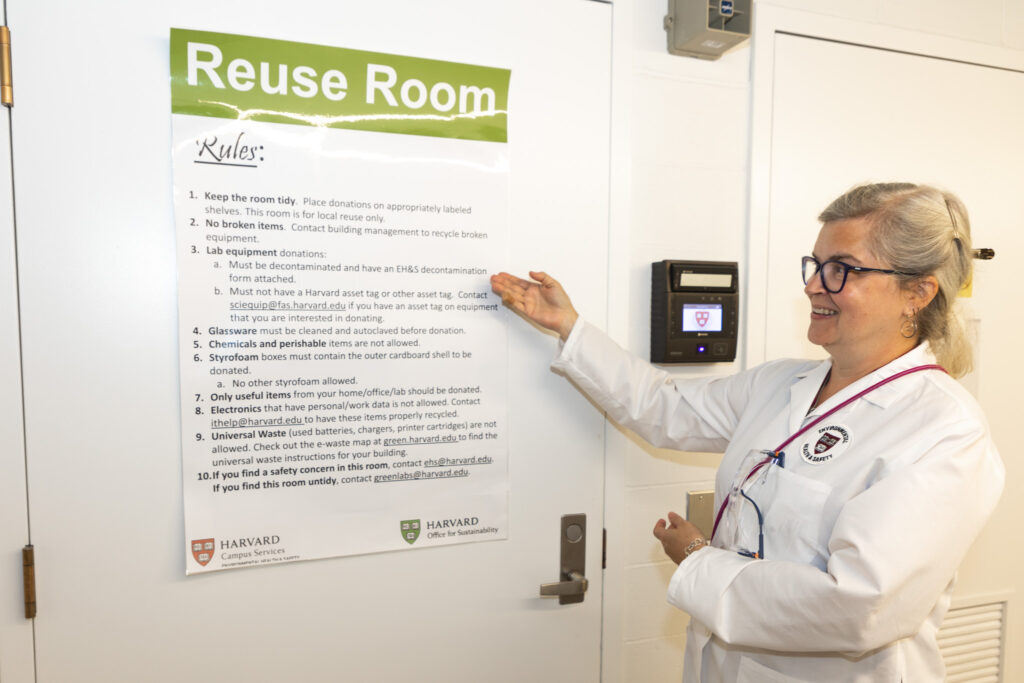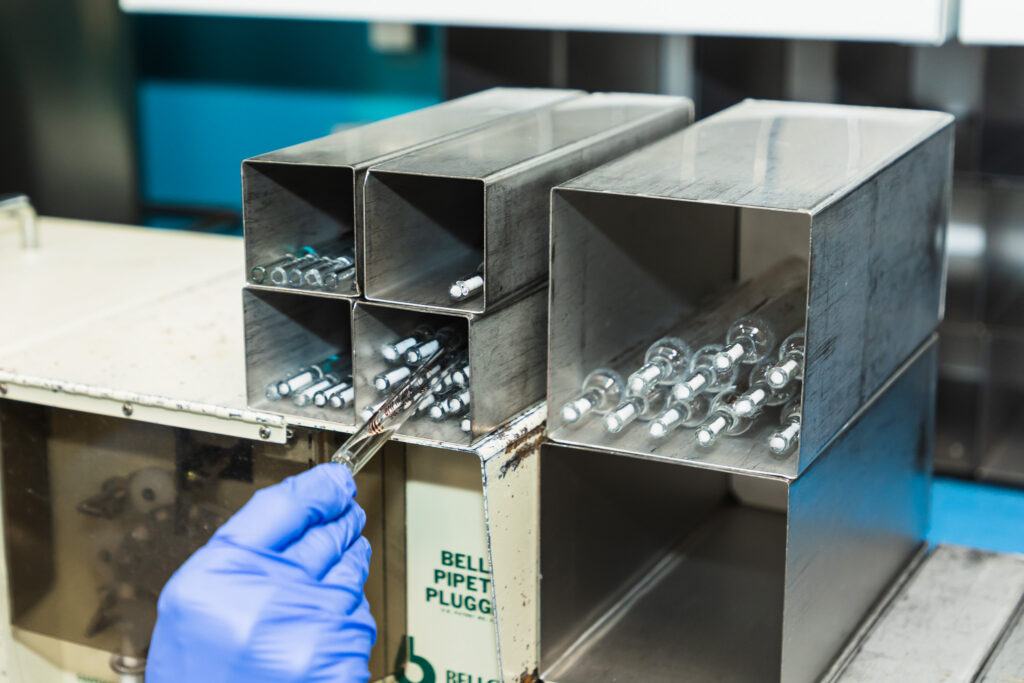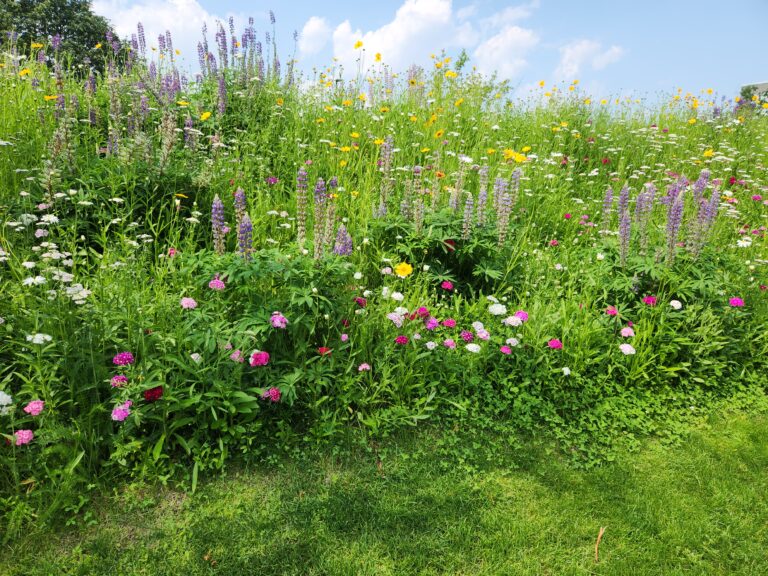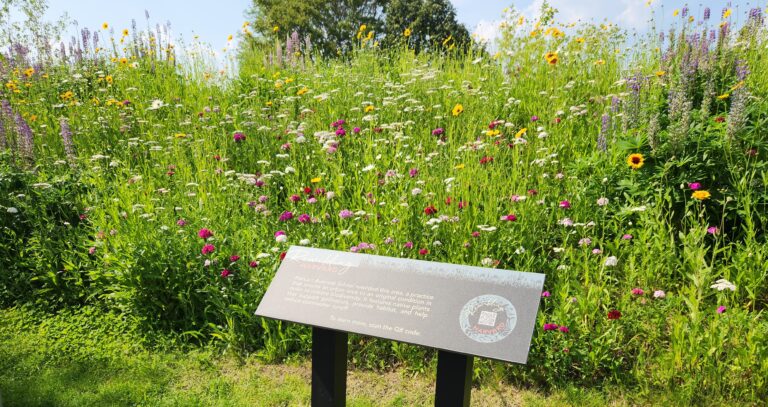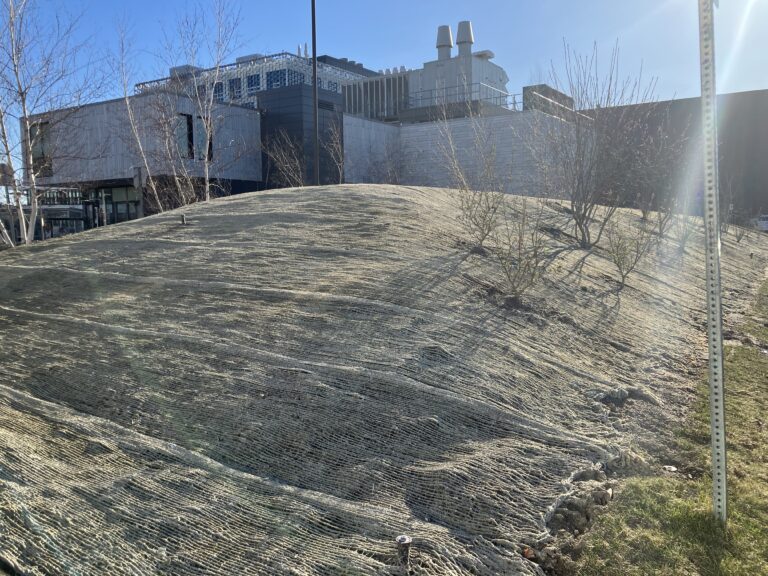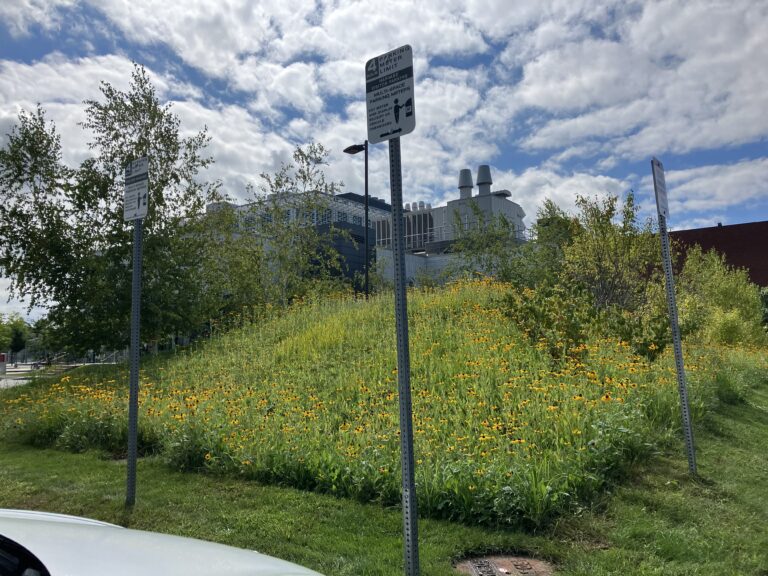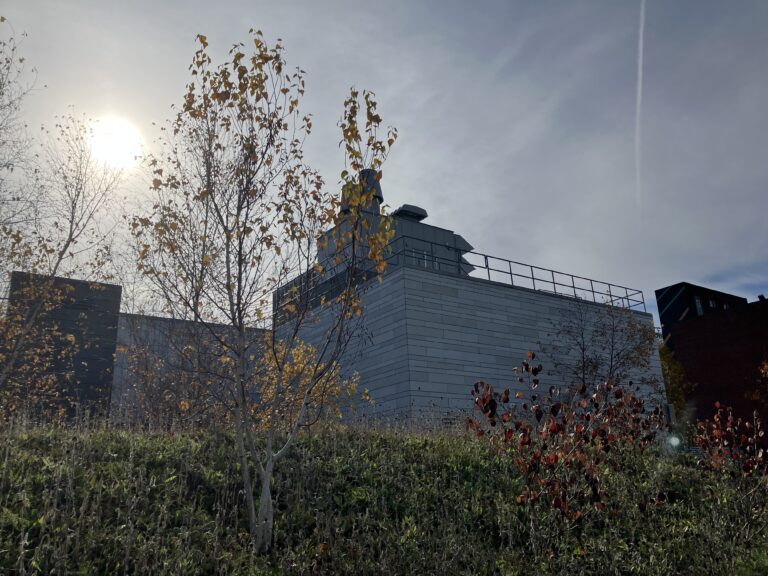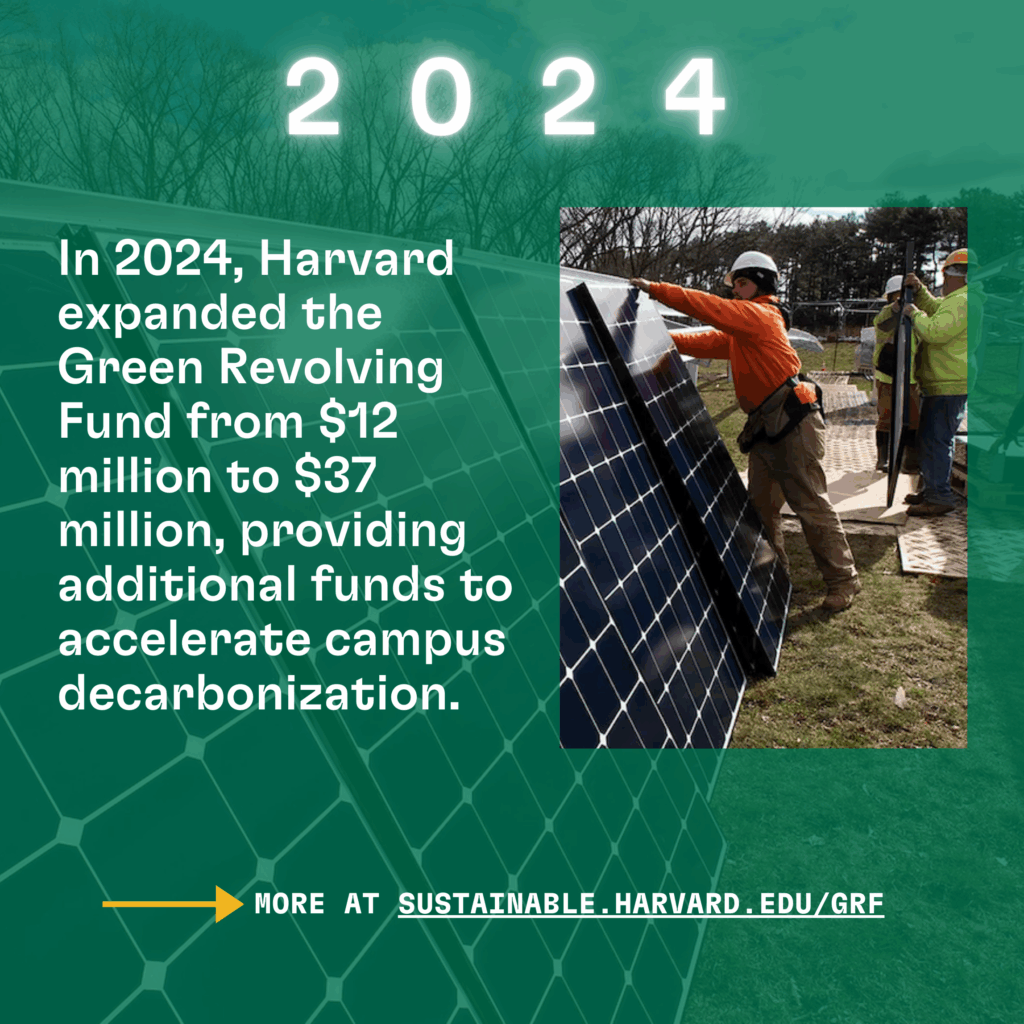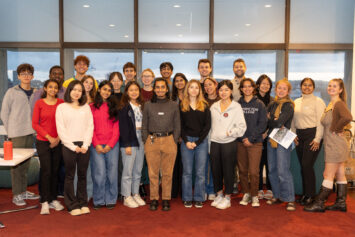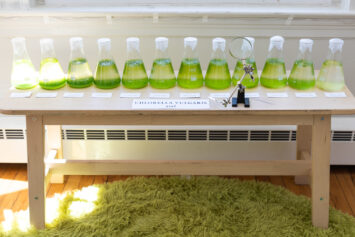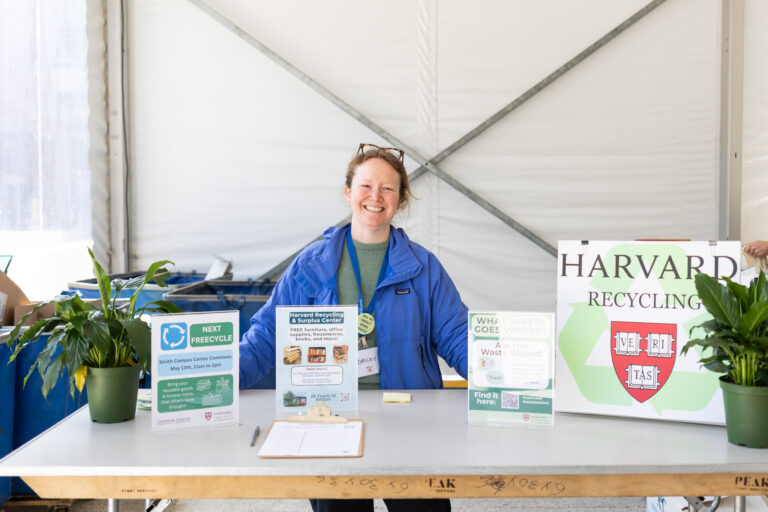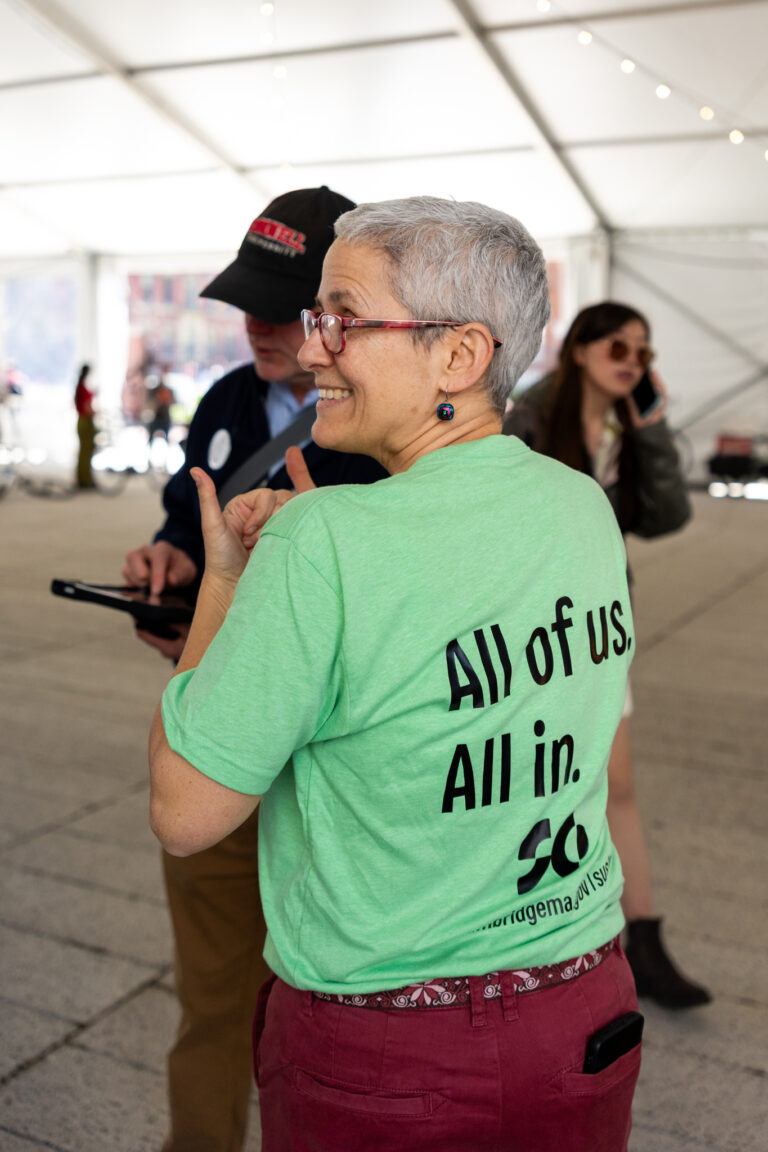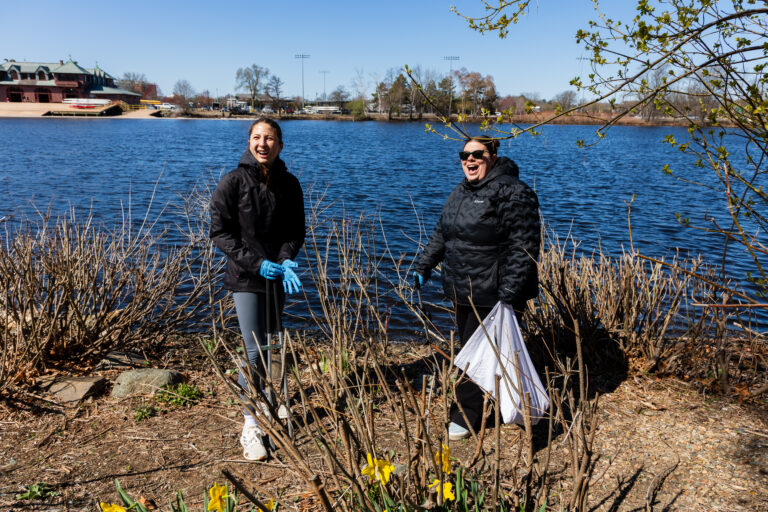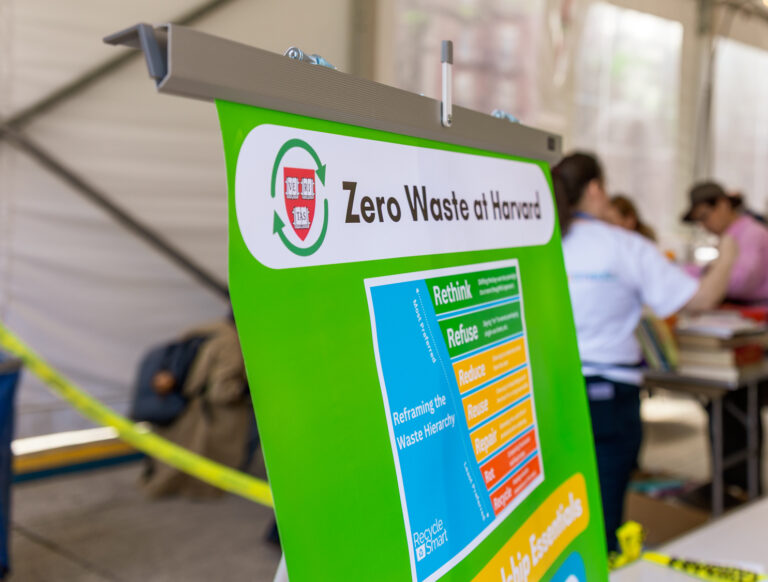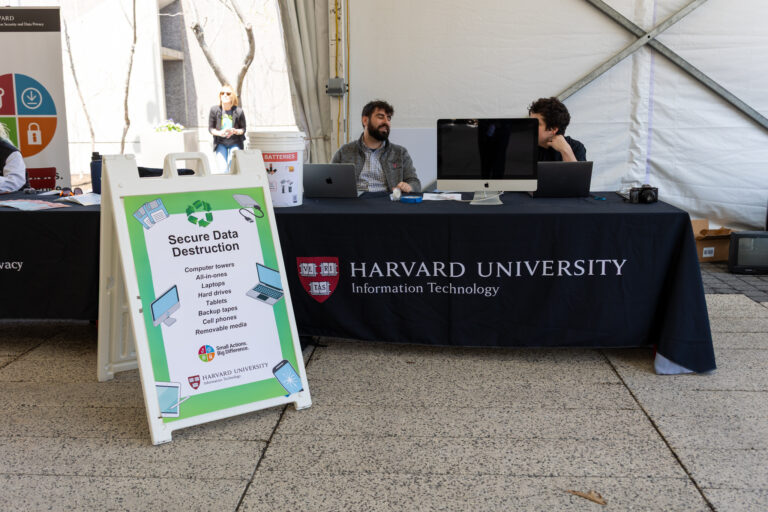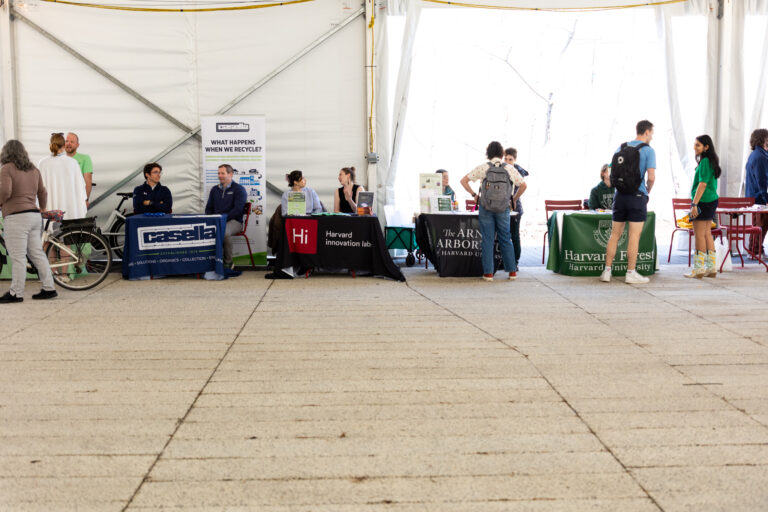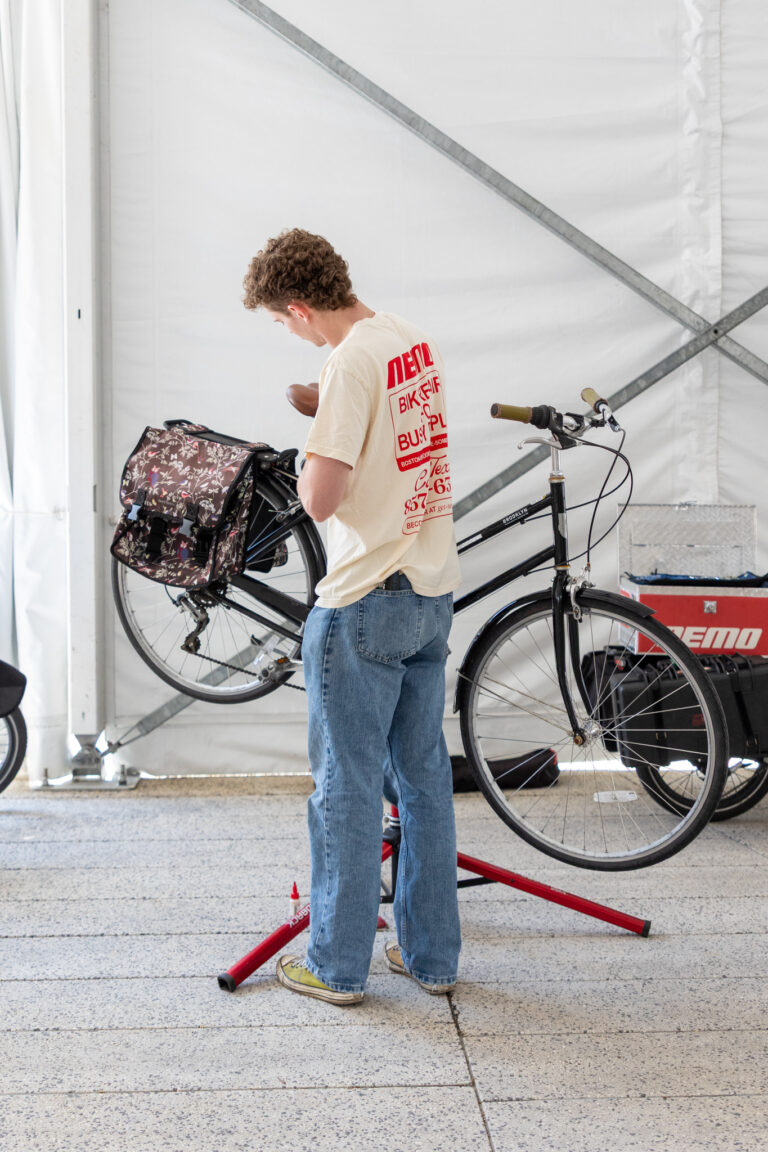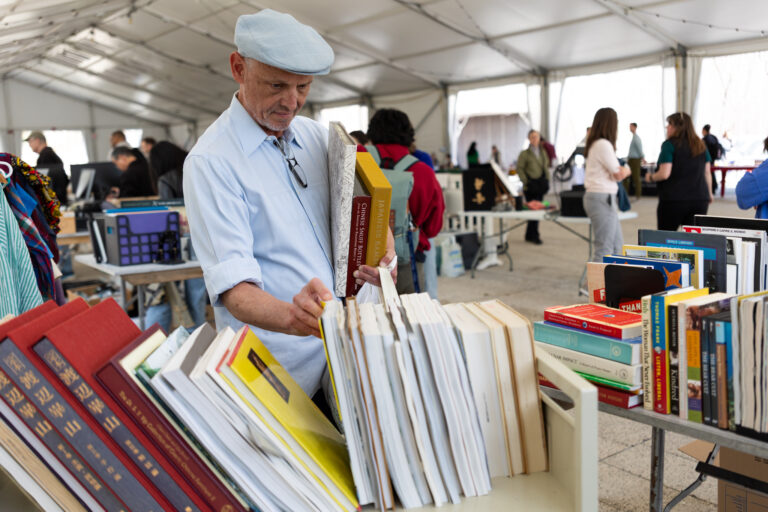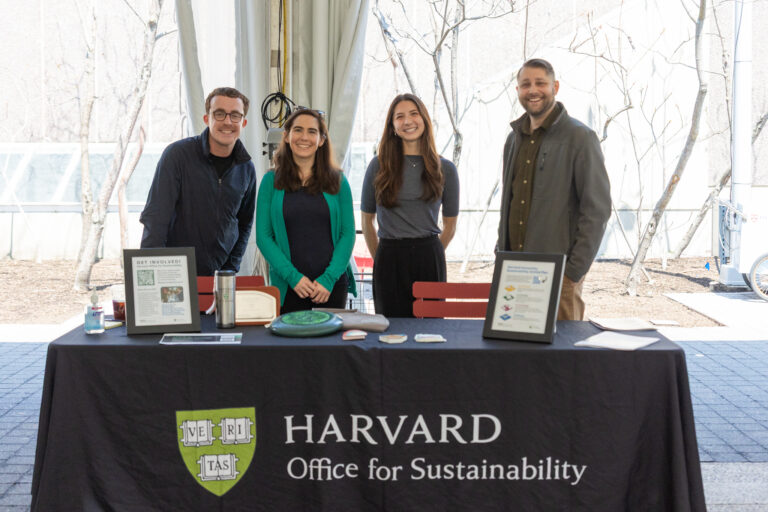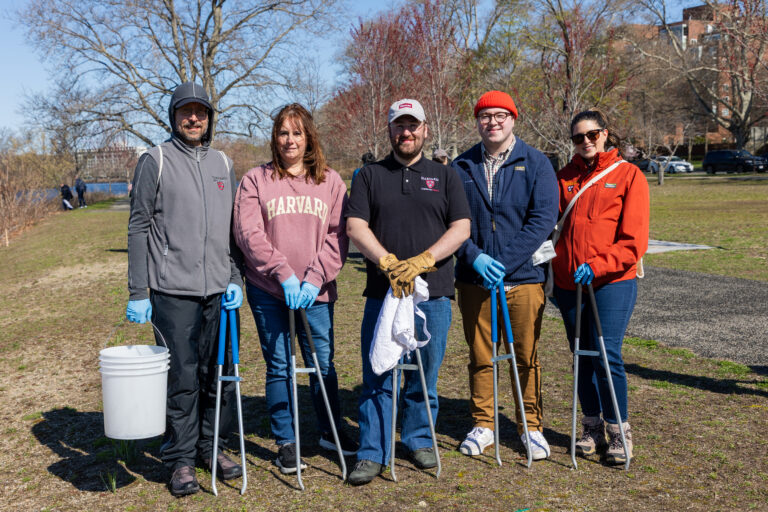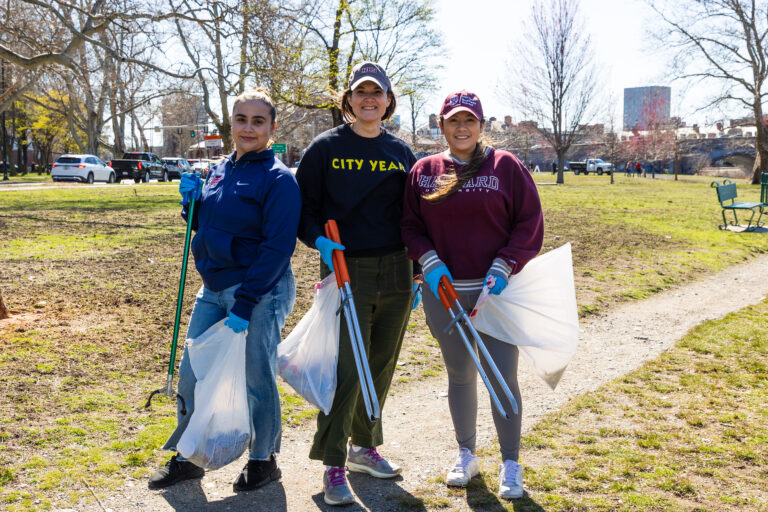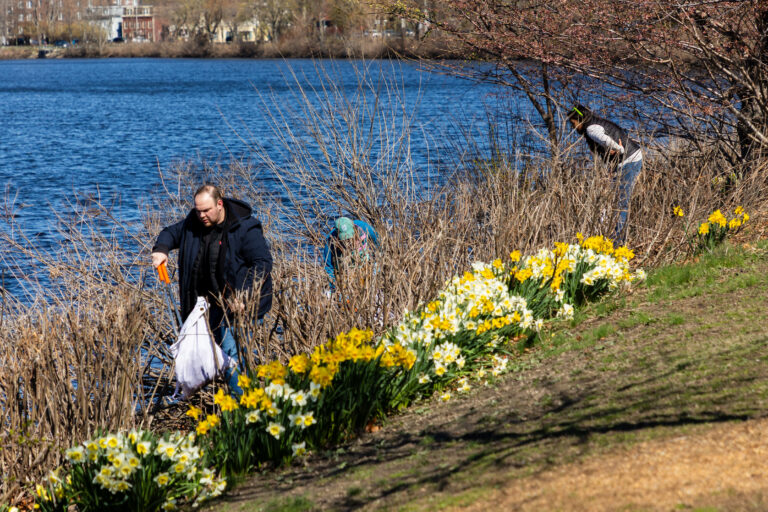2024-2025
Harvard Sustainability Report
How we are accelerating action toward a healthy, sustainable, fossil fuel-free future.
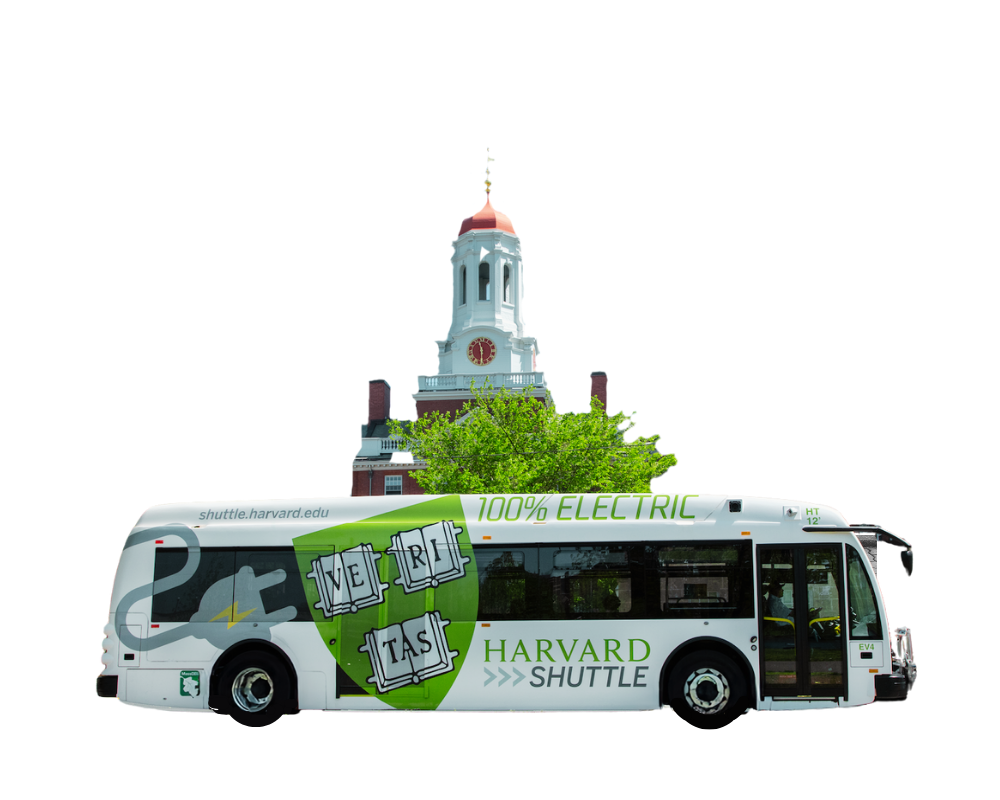
A message from Harvard’s Chief Sustainability Officer
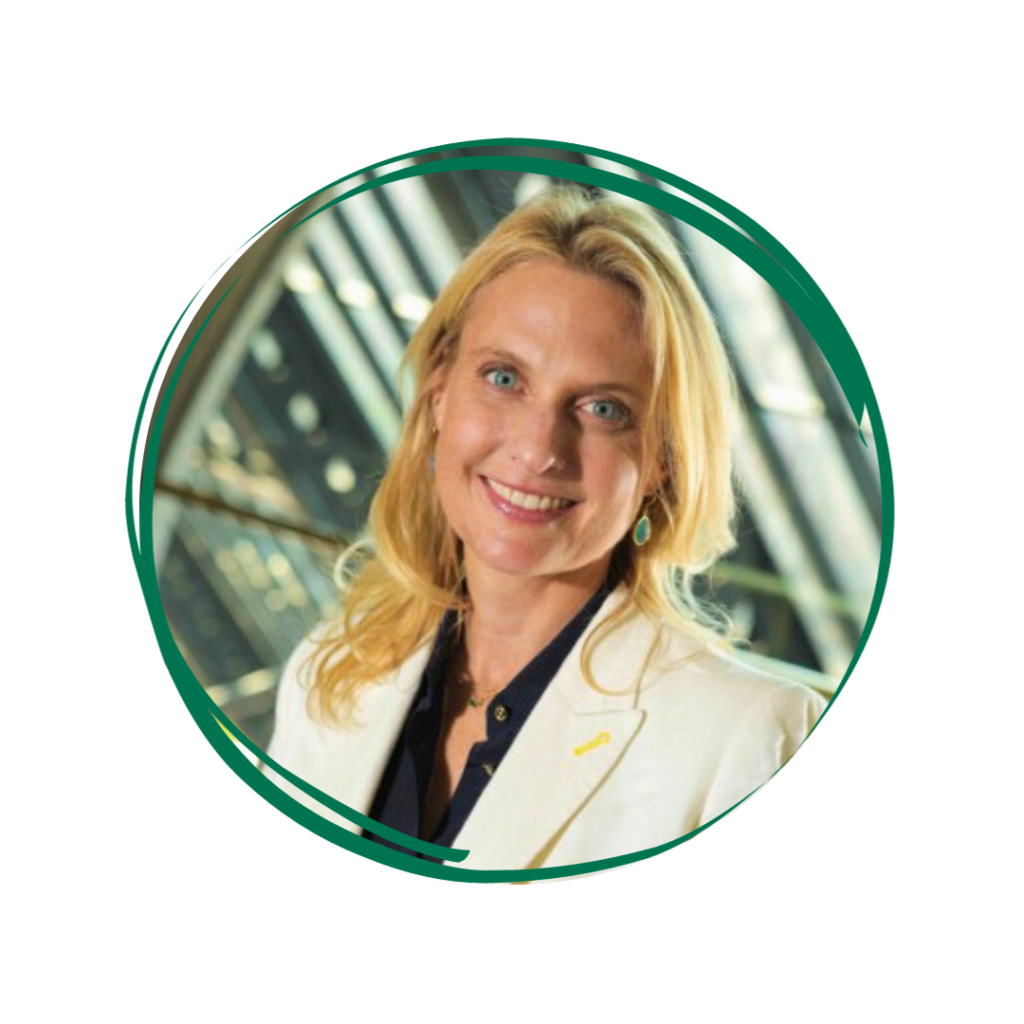
Harvard is harnessing world-renowned research and the thought leadership of our faculty and students to enhance climate, health, and community. We continue to use our campus as a testbed to pilot and prove scalable sustainability and climate solutions.
Our report covers 2024 accomplishments, and we are proud to highlight updated Sustainable Building Standards targeting Living Building Challenge (LBC) Core certification and Harvard Healthier Building Academy goals. Through an innovative approach to volume certifications for LBC Core, our project teams have been able to achieve these holistic Standards yet focus on innovative solutions to address climate and health. Achievements include low-energy buildings without onsite fossil fuels, reductions in embodied carbon, optimizing stormwater reuse, improving indoor air quality, incorporating healthier materials that benefit both people and the planet, and designing regenerative landscapes.
Harvard continues to decarbonize our historic and urban campus while addressing the negative impact of fossil fuel emissions on climate and health. In 2024, Harvard announced the formation of the Consortium for Climate Solutions, a first-of-its-kind renewable energy collaboration led by Harvard University, Mass General Brigham, and the Massachusetts Institute of Technology. These virtual power purchasing agreements (VPPAs) for new utility-scale renewable energy projects, when combined with Harvard’s renewable procurement in New England, means Harvard is purchasing the equivalent of 100% of its electricity from renewable sources starting in 2026.
This annual report captures our progress against our goals and showcases transformative sustainability solutions implemented in partnership with faculty, students, staff and our community over the past year.
— Heather Henriksen, Chief Sustainability Officer
1.3M MWh/year of new renewable energy from two large-scale projects added to the US electric grid in 2025 as part of the Consortium for Climate Solutions.
8 major capital projects at Harvard are on track to achieve at least 20%, and up to 50%, reduction in embodied carbon compared to conventional construction.
~40% reduction in Harvard’s GHG emissions per square foot from 2006-2024. Total emissions declined 32% despite a 14% increase in building sq. footage.
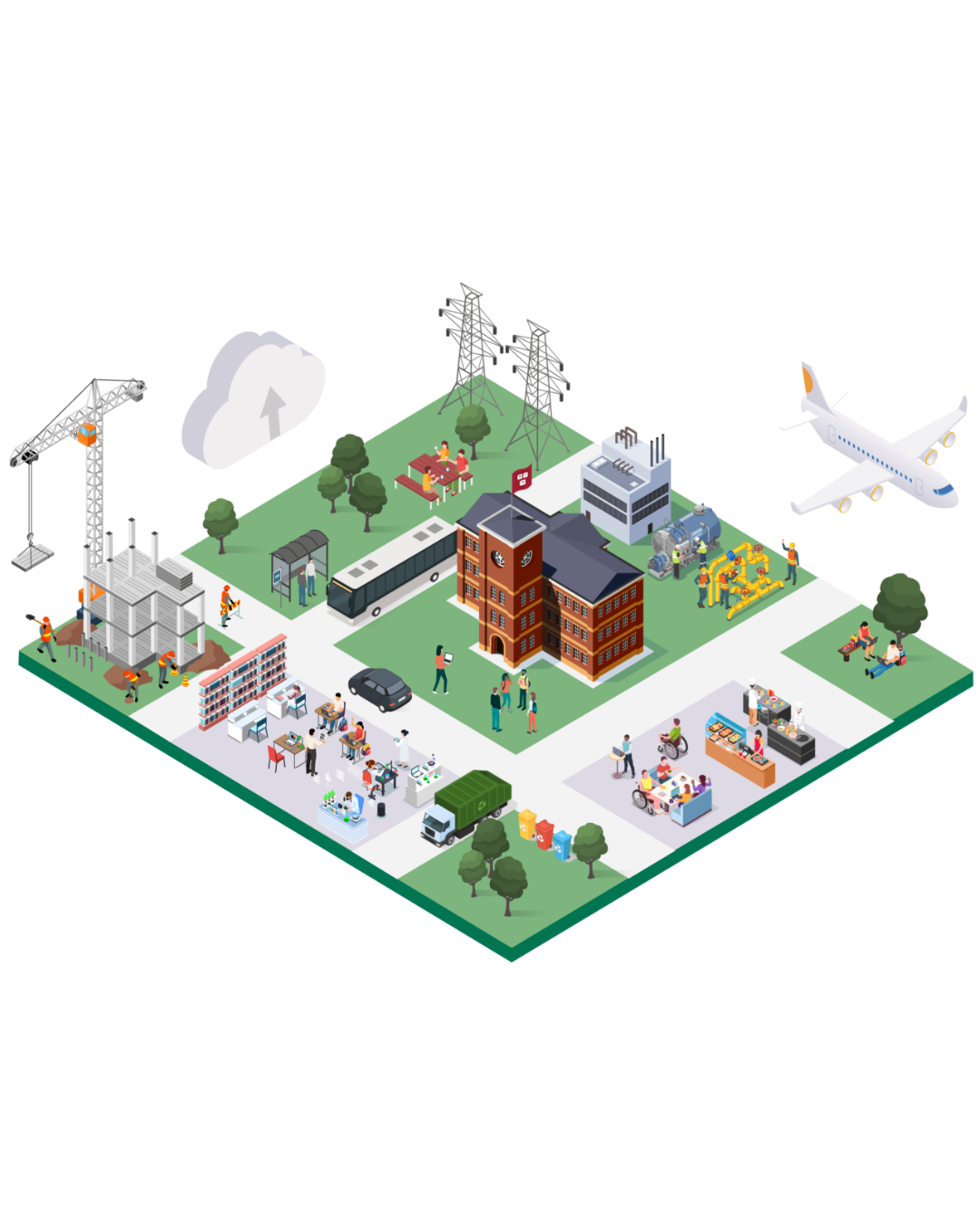
19 Certified Green Restaurants®, making Harvard the Green Restaurant Association’s Greenest University with the most certified Green Restaurants in both 2024 and in 2025.
~32% of Harvard’s vehicle fleet are either electric, hybrid, or biodiesel. In 2024, 27 new EV chargers were added at more than five parking locations.
200+ Green Revolving fund projects focused on energy efficiency and decarbonization projects across 25 departments.
How We Power
Harvard is focused on decarbonizing its campus toward its goal to be Fossil Fuel-Free by 2050. The University is addressing emissions through advanced energy efficiency measures, decarbonizing its energy supply, electrification projects, renewable electricity procurement, and increasing its EV fleet. Mission-driven projects are the priority and provide opportunities to decarbonize.

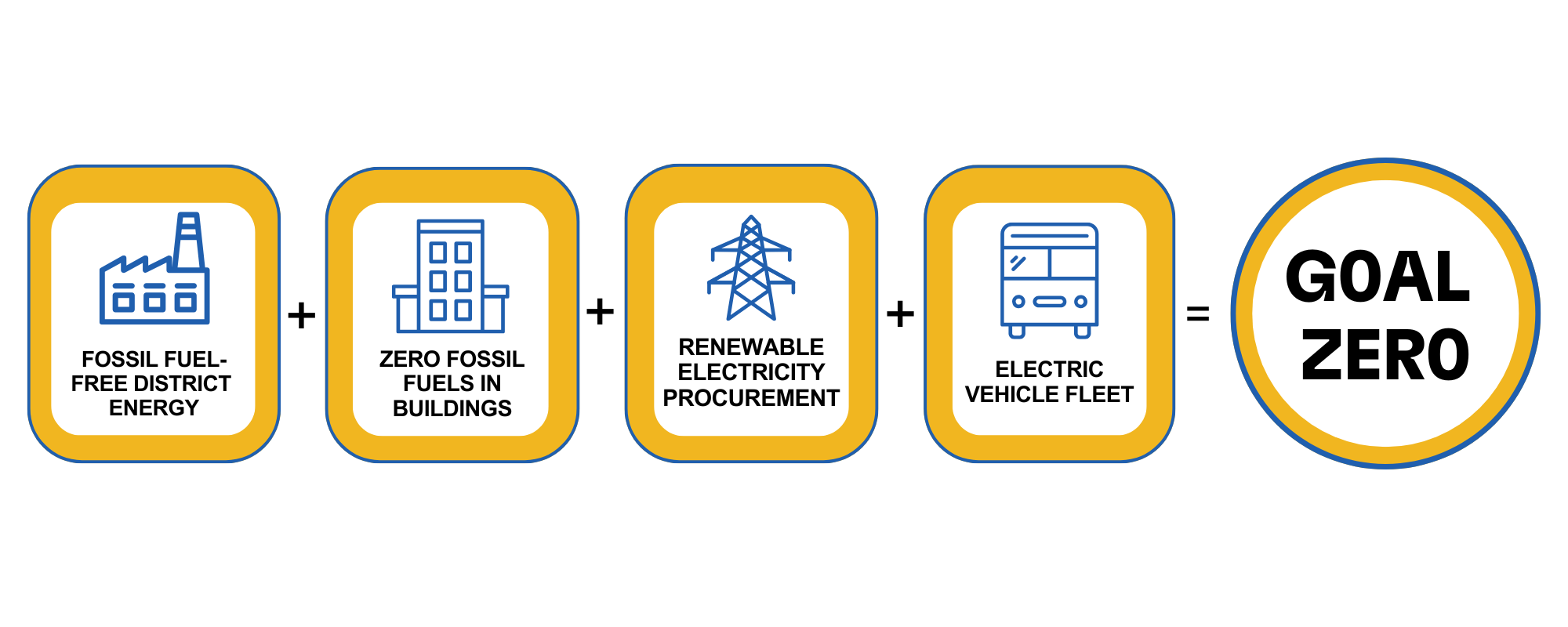
Fossil Fuel-Free by 2050
In February 2018, a faculty-led Climate Change Task Force recommended Harvard set a goal to be Fossil Fuel-Free by 2050. Known as Goal Zero, this target is focused on eliminating the use of fossil fuels in Harvard’s buildings, district energy systems and vehicles by 2050.
Harvard’s decarbonization efforts build on the successful energy savings strategies that helped the University achieve its first climate goal in 2016 – to reduce net emissions by 30% against a 2006 baseline, even as the campus’s physical footprint grew.
Fossil Fuel-Neutral by 2026
As a bridge to Goal Zero, the faculty-led Climate Change Task Force recommended Harvard set a near-term objective to become Fossil Fuel-Neutral by the end of calendar year 2026. This means that in addition to reducing Harvard’s own emissions, the University will zero out Scope 1 and Scope 2 emissions by funding high-quality and high-integrity projects, including the two new large-scale renewable energy projects enabled by a renewable buyers Consortium, co-led by Harvard. These projects add new, clean energy to the U.S. electricity grid through virtual power purchase agreements (vPPAs). Once fully operating, these projects allow Harvard to address almost 50% of its GHG emissions toward its goals.
Harvard’s Health Impacts Footprint
The Harvard Healthy Buildings program at the Harvard T.H. Chan School of Public Health (HSPH), with researchers from Oregon State University College of Engineering, and Boston University School of Public Health, developed a tool called the Co-Benefits of the Built Environment (CoBE) to help building owners, operators, investors, and others quantify health and climate benefits for evidence-based decision-making. The Harvard Office for Sustainability has been working with researchers from the T.H. Chan School of Public Health on a first-of-its-kind effort, to our knowledge, for a University to estimate not only its greenhouse gas emissions footprint, but to also estimate the health impact from air pollution caused by energy use.
Reducing Emissions & Energy Usage
Expanding Solar Power at Harvard

1.3 million megawatt-hours of renewable electricity/year

~130,000 homes' electricity annually
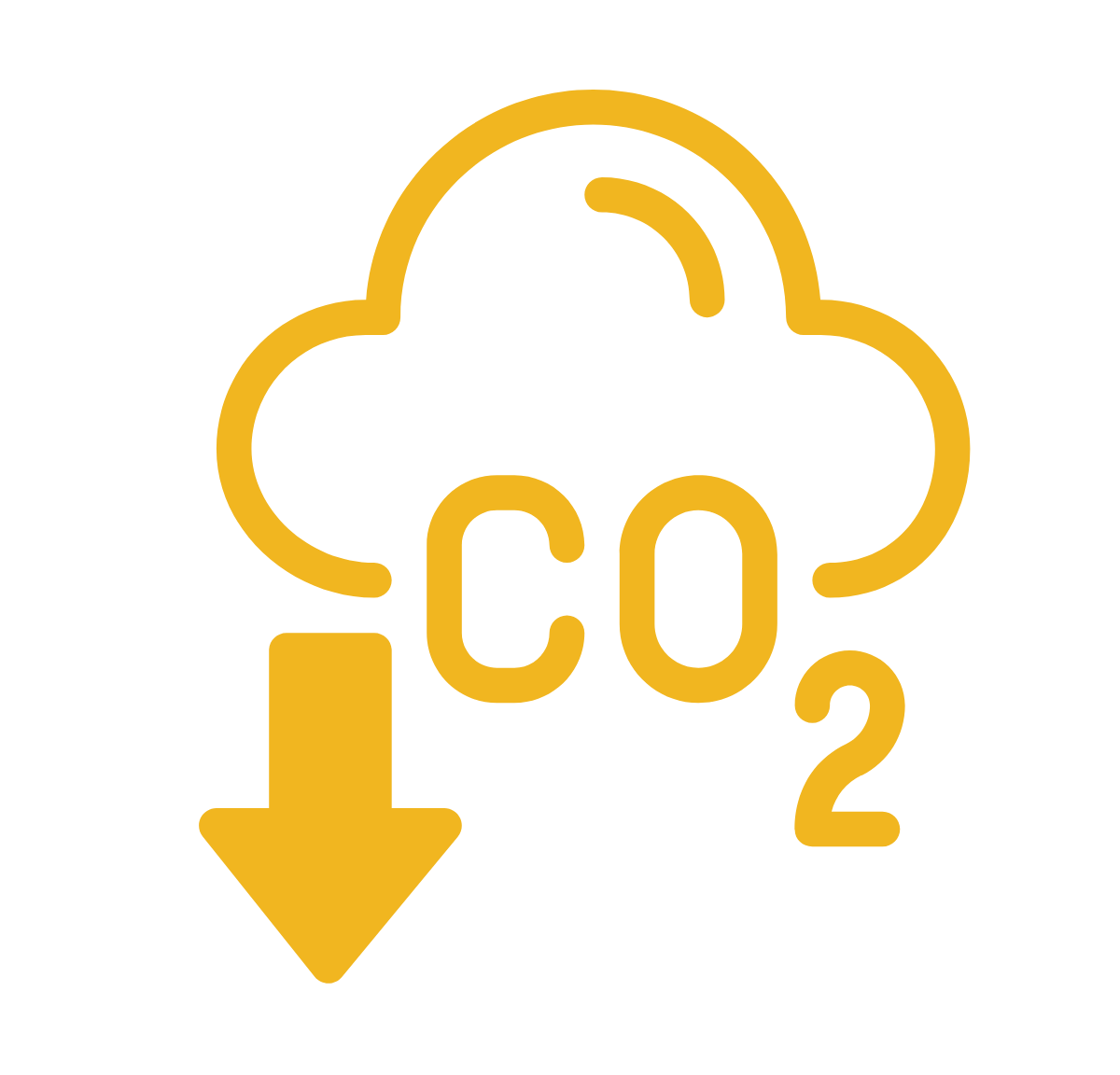
~1 million tons of emissions avoided

11 local partners
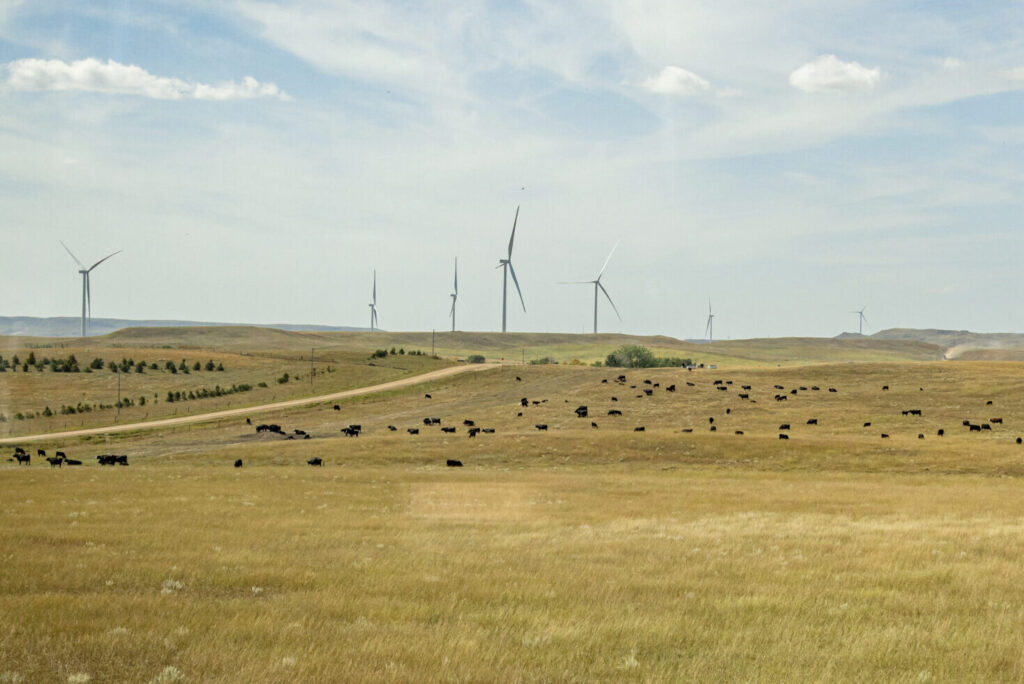
Harvard, MIT, Mass General Brigham form first-of-its-kind renewable energy procurement

Harvard, the Massachusetts Institute of Technology, and Massachusetts General Brigham, and PowerOptions led the Consortium for Climate Solutions, a first-of-its-kind renewable energy aggregation that exemplifies collaboration on climate action, enabling greater renewable energy investment than any single institution alone.
The partnership of 11 organizations, including the City of Cambridge and smaller non-profits, were able to invest in renewable energy by sharing resources and negotiating together. Municipal procurement barriers were eliminated, paving the way for other cities to engage in similar initiatives. The Consortium enabled the development of two large-scale renewable energy projects that will add 1.3 million megawatt-hours of renewable electricity annually to the U.S. grid.
These virtual power purchasing agreements (vPPAs) for new, utility-scale renewable energy projects, when combined with Harvard’s renewable procurement in New England, means Harvard is purchasing the equivalent of 100% of its electricity from renewable sources starting in 2026.
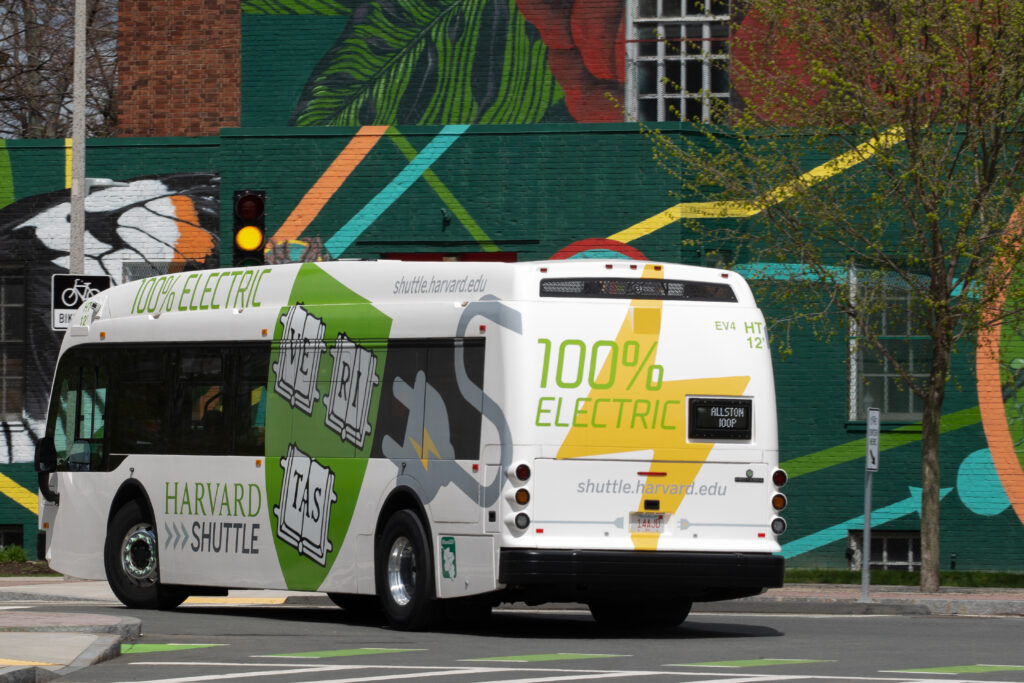
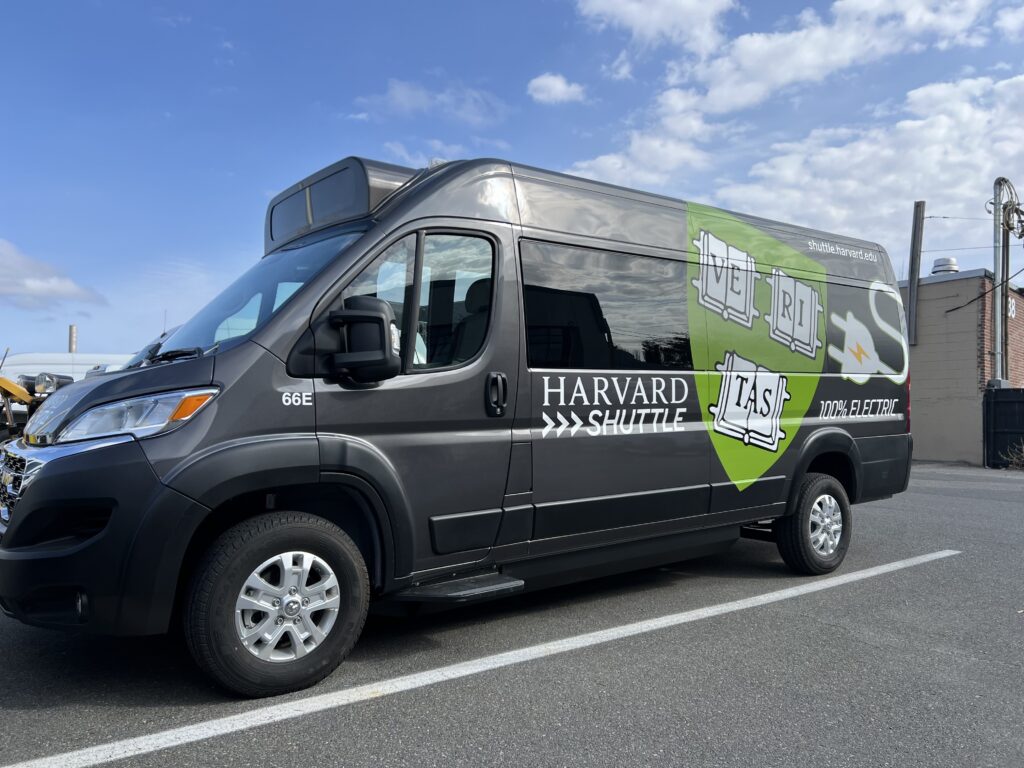
Transforming Our Fleet
Harvard Transportation is increasing its use of alternative-fuel vehicles, including fully electric vehicles (EVs) and EV charging stations. The University’s shuttle fleet is nearly one-third electric, and the entire University fleet includes 18 University-owned electric shuttle buses, cars, vans, and specialized vehicles operating on both the Cambridge and Allston campuses. Recent additions have expanded EV charging capacity across multiple parking locations.
Alongside EVs, Harvard’s fleet features numerous biodiesel vehicles such as trucks, buses, and vans, all powered by renewable fuels. Hybrid vehicles, including accessible vans, cars, and police vehicles, are also in regular use across the University’s operations. Learn more about transportation and commuting.

32% of vehicle fleet use alternative-fuels

18 total University-owned electric vehicles

20 new EV charging stations
How We Build
Through sustainable design, construction, sourcing, and operation of our buildings and landscapes, we aim to enhance the health of people and the planet, focusing on reducing emissions of our operations and fossil fuel use throughout the value chain while improving quality of life on Harvard’s campus and in the surrounding community.

Certifications

~90% of the Rubenstein Treehouse's stormwater will be managed on-site
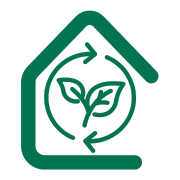
90% 'green' leases win Platinum-level award

2 new mass timber building projects under construction

>90% of Smith Campus Center ventilation system electrified

>4,500 windows replaced by FAS House Renewal

~80% reduction of embodied carbon in skylight design at HMS West Commons
Sustainable Building Standards Advance Climate, Health, + Target LBC Core
Harvard University released its 2024 Sustainable Building Standards in November 2024, which marks the most significant update since the standards were first developed in 2009 to require LEED Gold and additional climate and health requirements. The 2024 standards now target Living Building Challenge (LBC) Core certification in addition to future-proofing for a fossil fuel-free future and climate resilience, Harvard Healthier Building Academy’s (HHBA) enhanced requirements for healthier materials, more fresh air and improved indoor air quality.
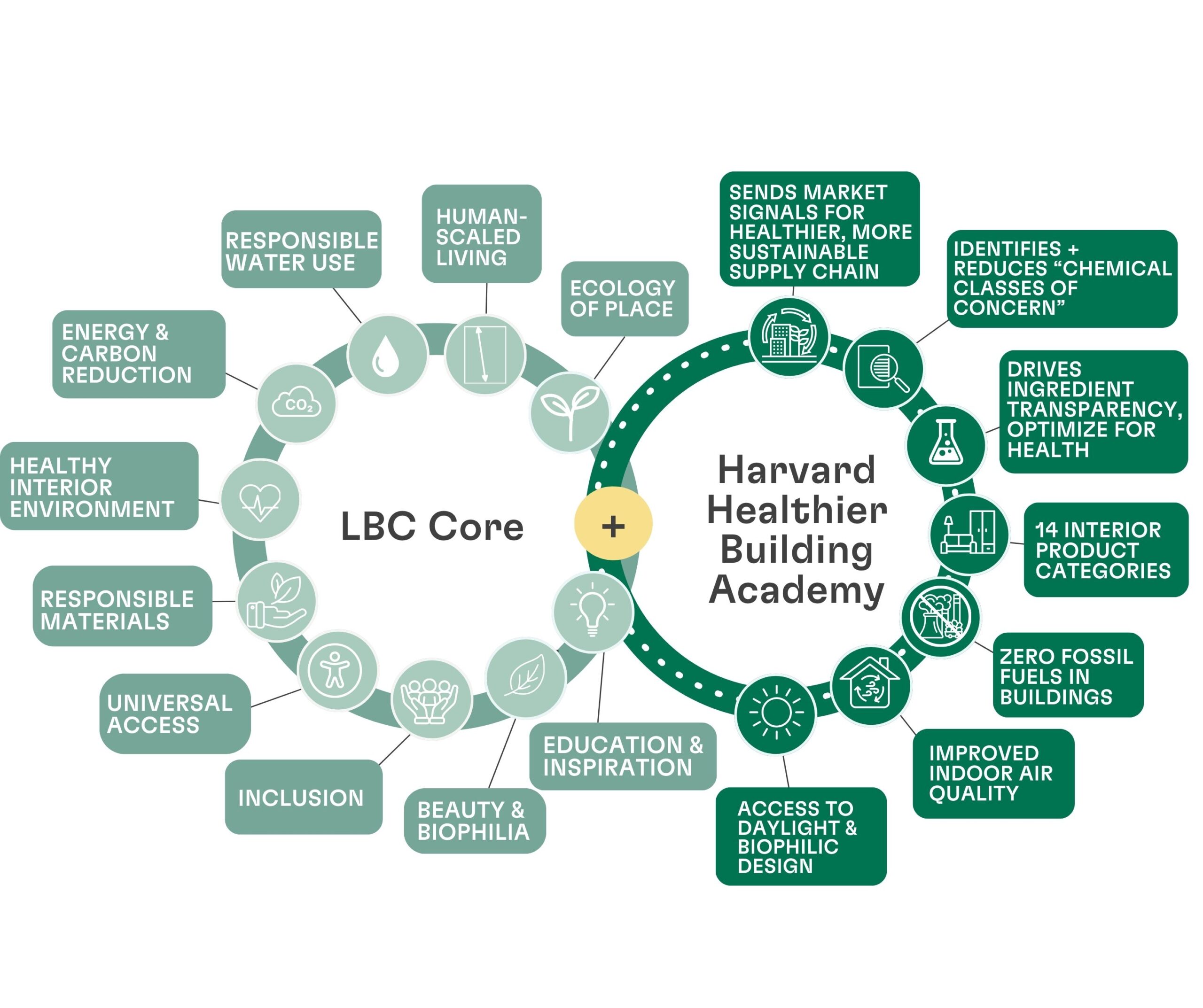
Harvard Healthier Building Academy (HHBA)
- The Harvard Healthier Building Academy (HHBA), is a partnership between the Harvard Office for Sustainability and faculty from the Harvard T.H Chan School of Public Health, John A. Paulson School of Engineering and Applied Sciences, and Harvard Medical School.
- HHBA’s mission is to design, build, and operate healthier buildings, which includes supporting a healthier supply chain without the use of harmful classes of chemicals (e.g., PFAS, chemical flame retardants, antimicrobials, etc.), better indoor air quality in buildings, and providing access to daylight and nature.
- In 2024, HHBA expanded its initial list of interior product categories from five (set in 2017) to 14 interior product categories. HHBA products do not contain chemical flame retardants, PFAS/forever chemicals and antimicrobials and go further on chemical class avoidance where possible. It is important to note that the great majority of these materials do not cost more, are durable and even preferred by cleaning staff.

Our studies have found that spaces refitted to follow our playbook had nearly 80% lower levels of forever chemicals in the dust compared to spaces that were renovated earlier.
– Harvard Business Review article “Creating Workplaces Free of Forever Chemicals” by:
Heather Henriksen is Harvard’s Chief Sustainability Officer, and she leads the Office for Sustainability; Joseph G. Allen is an associate professor and director of the Healthy Buildings program at the Harvard T.H. Chan School of Public Health. He is also the co-author, with John D. Macomber, of Healthy Buildings: How Buildings Can Make You Sick — or Keep You Well (Harvard University Press); Michael W. Toffel is the Senator John Heinz Professor of Environmental Management at Harvard Business School, host of the HBS Climate Rising podcast, and co-lead of the HBS Online Business and Climate Change course.
Sustainable Building Spotlights
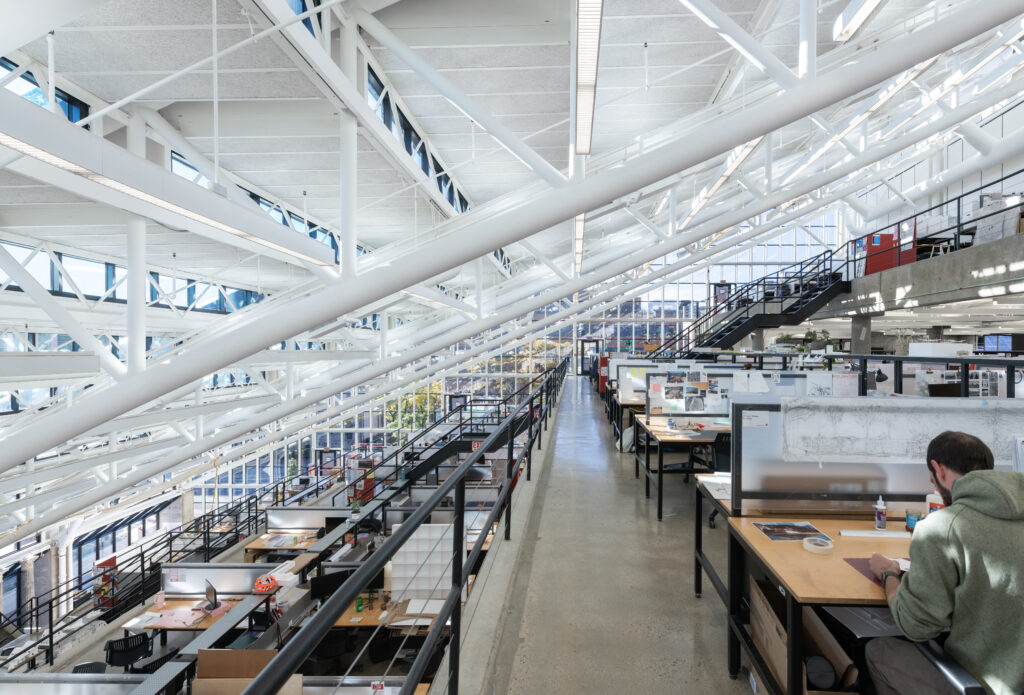
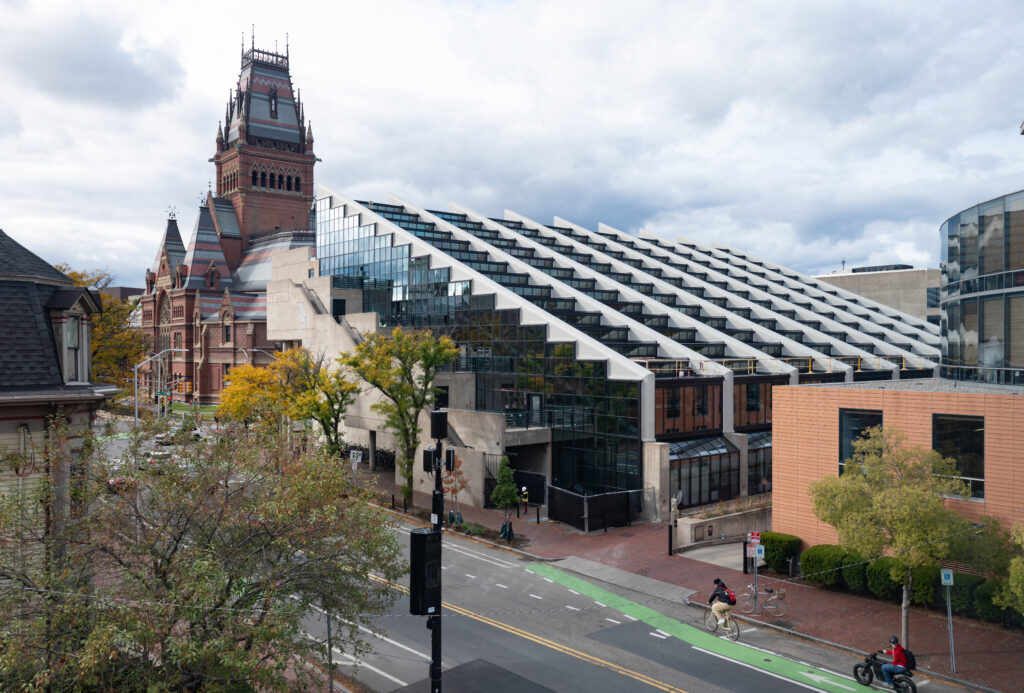
Gund Hall, GSD
Melding Heritage and Innovation at the Harvard Graduate School of Design
- The renovation of Gund Hall – first built in 1972 – aimed to preserve the building’s historic architecture while improving its energy performance, comfort, and sustainability.
- The project retained the original steel façade support system to reduce embodied carbon, presenting challenges for integrating high-performance glazing.
- Glazing was replaced with custom triple vacuum insulated glass (VIG) for improved weather resistance and energy efficiency. Gund Hall is among the first projects in the United States to employ hybrid and regular VIG on this scale.
- Thermal performance is two to four times greater than standard insulating glass and up to 10 times better than single glazing.
- The “trays” – a five-story glass-enclosed studio block – make up 28% of Gund Hall’s floor area but consumed 46% of its energy pre-renovation. The project is anticipated to achieve a ~20% reduction in utility costs and a 22% reduction in energy use intensity, equivalent to 18,000 kg CO2 in avoided emissions annually.
- The project also widened the exits to the tray’s outdoor terraces, making them wheelchair accessible for the first time.
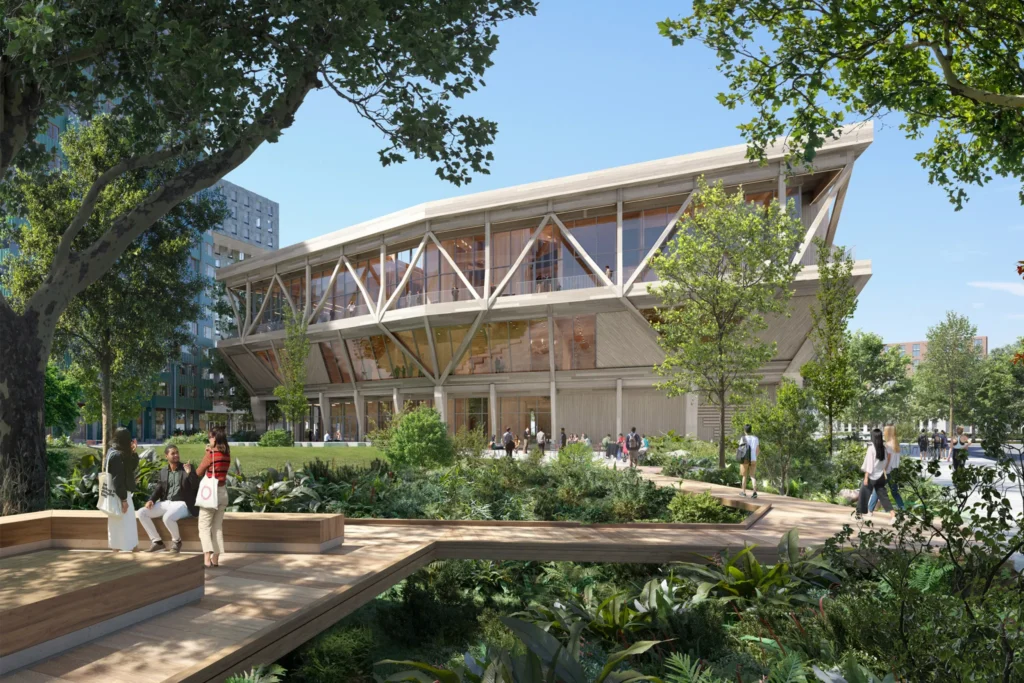
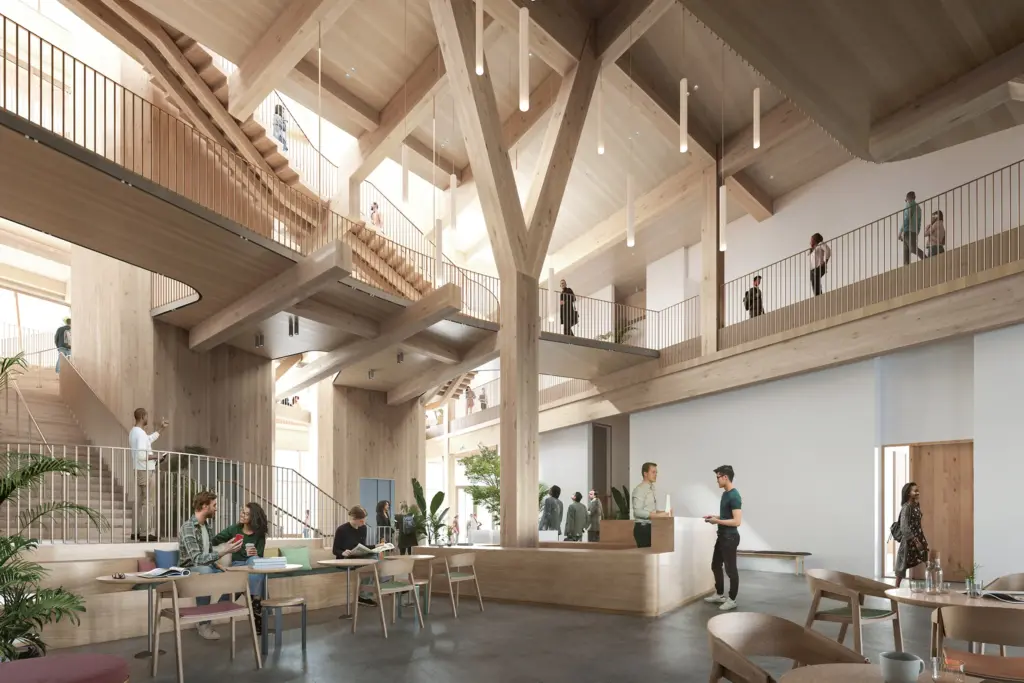
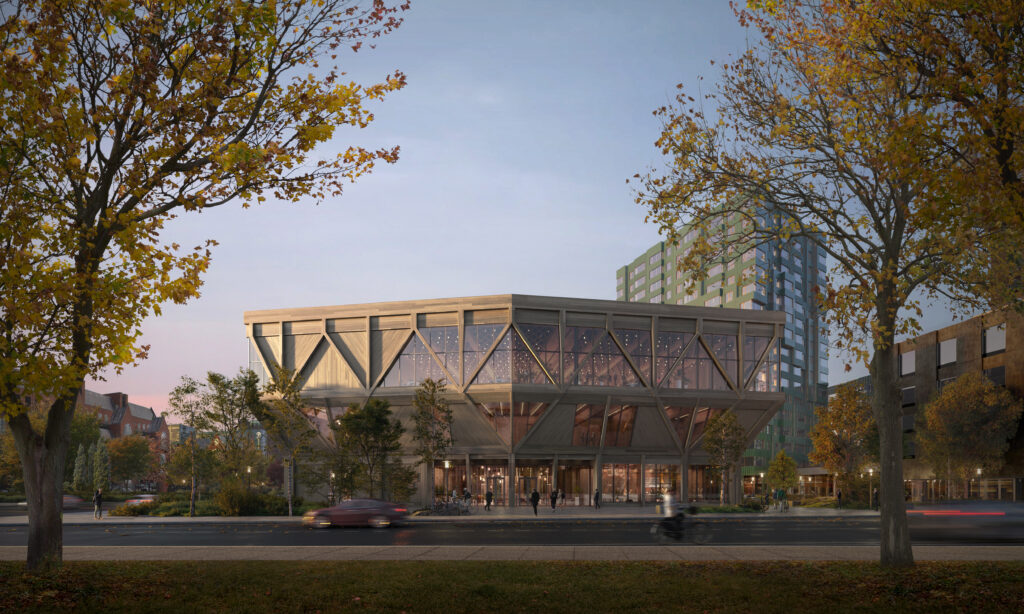
David Rubenstein Treehouse Conference Center
Targeting to be most sustainable conference center in MA
Opening later in fall of 2025, the David Rubenstein Treehouse will be a leading example of holistic sustainability performance.
- Rubenstein Treehouse has set a new bar for sustainable design at Harvard. It is designed with no fossil fuels in the building, including an all-electric commercial kitchen, and its design significantly reduces embodied carbon, increases fresh air supply, uses healthier materials (removing chemical classes of concern, like PFAS/forever chemicals) plus locally-sourced materials, manages stormwater on-site for retention and reuse, and much more.
- Displacement ventilation delivers fresh air through the floor, relying on the buoyancy of warmer air to ventilate the space and exhaust pollutants toward the ceiling. This approach improves air quality and creates a quieter, more comfortable environment for occupants, while still dramatically reducing energy use.
- In addition to pursuing Living Building Challenge (LBC) Core certification, the Rubenstein Treehouse is piloting LBC Petal Certification for Materials, to drive transparency in the marketplace and compare the certification against the more rigorous healthier materials requirements of Harvard’s Healthier Building Academy (HHBA). The building also prioritizes material transparency for all building materials (not just the 14 HHBA product categories) and synergies in design to reduce environmental impact.
- Reduction of embodied carbon through use of a mass timber structure, low embodied carbon insulation, glazing and healthier low embodied carbon concrete in the foundation and building structure. Instead of fly ash, structural and non-structural concrete used Ground Glass Pozzolan (GGP), a recycled glass product–a first in Massachusetts to be used in the structural concrete and substantially throughout the project.
- Strategies included use of locally sourced materials to reduce transportation emissions and support a strong regional economy, designing for disassembly to support the reuse and recycling of materials at the end of their useful life, and harvesting mass timber from responsibly managed forests.
- The use of bird-safe fritted glass, designed to prevent collisions, supports a safer and healthier ecosystem.
- Revitalizing a former brownfield site into a regenerative, resilient landscape. The site is engineered to manage ~90% annual rainfall on site through an integrated series of landscape features including stormwater gardens, bio-retention swales, plantings, cisterns, and permeable paving.
- The Rubenstein Treehouse is designed to provide 75% more outside air than code minimums to prioritize occupant health, cognition, and productivity.
Seizing Opportunities to Decarbonize Harvard’s Campus
Harvard’s recent sustainable building projects showcase a shared commitment to decarbonization of operational and embodied emissions, human health and comfort, and pursuit of leading sustainability certifications. From historic renovations to new construction, these projects prioritize all-electric systems in the building, healthier and energy efficient ventilation, embodied carbon reductions, use of healthier and local materials, regenerative site strategies and are climate resilient.
How We Operate
Harvard is accelerating new systems that enable healthier, low-carbon living and can be scaled and adopted more broadly. By developing new systems and practices, we are modeling sustainable operations that can lead to healthier communities. We have Sustainability Standards for Harvard’s operational areas: food, IT, landscaping, cleaning, and more.

Explore: Scope 3 Emissions, IT, Food, Waste, Transportation, Water, Landscaping
Reducing Scope 3 Emissions

2 University-wide Scope 3 goals

25% reduction goal in food-related emissions by 2030

8 capital projects on target
Advancing Sustainable IT
The Harvard University Information Technology (HUIT) team was awarded SustainableIT.org’s Responsible AI Impact Award, which recognizes “organizations that exemplify and facilitate the effective and sustainable deployment and use of AI at scale within the enterprise”. In particular, the award committee recognized HUIT’s work on Harvard’s AI guidelines, innovation programs (including the Executive Vice President Artificial Intelligence Innovation Program, or EVP AIIP), and the AI Sandbox tool for enabling responsible experimentation with AI across the University.
Pictured: At Harvard’s 2025 Earth Day event, HUIT collected and properly disposed of 480 hard drives, 103 laptops, and 136 cell phones within a few hours. Proper disposal of sensitive materials through shredding and recycling preserves privacy, reduces landfill waste, and supports environmental sustainability. Learn how to properly dispose of e-waste at Harvard.
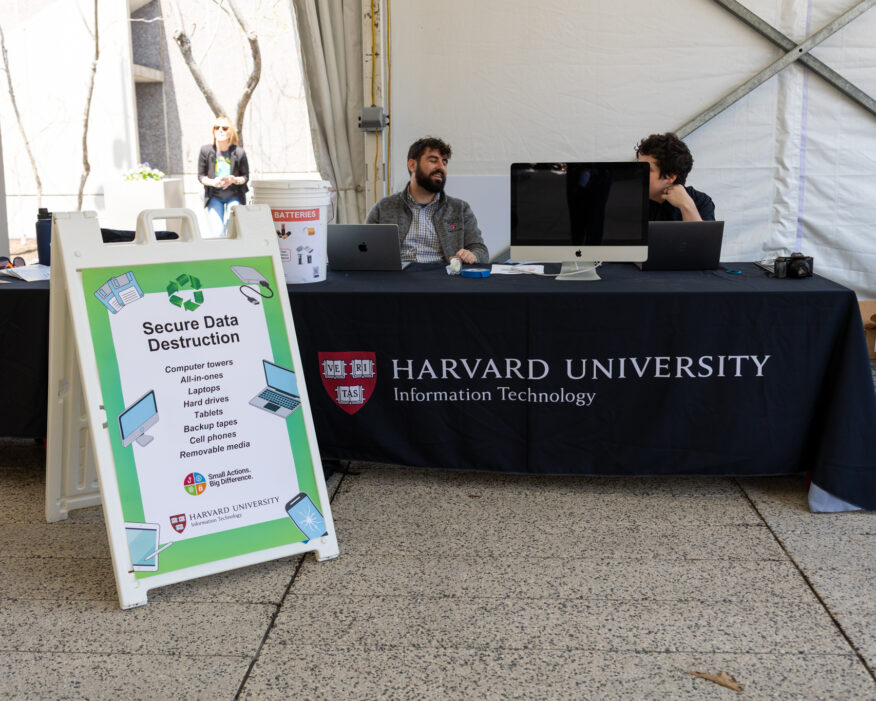
Food
SINCE 2019
Coolfood Pledge
As an inaugural signatory to Coolfood, Harvard aims to:
- Reduce greenhouse gas emissions (GHG) from food by 25% by 2030
- Reduce per-plate emissions by 38% by 2030
- Simultaneously enable and support sustainable food systems
- Reduce wasted food

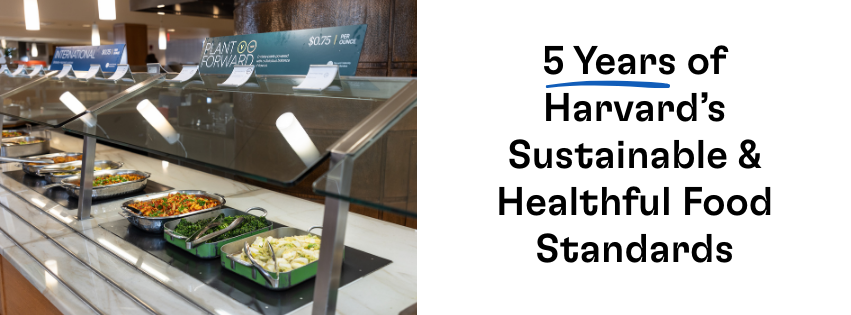
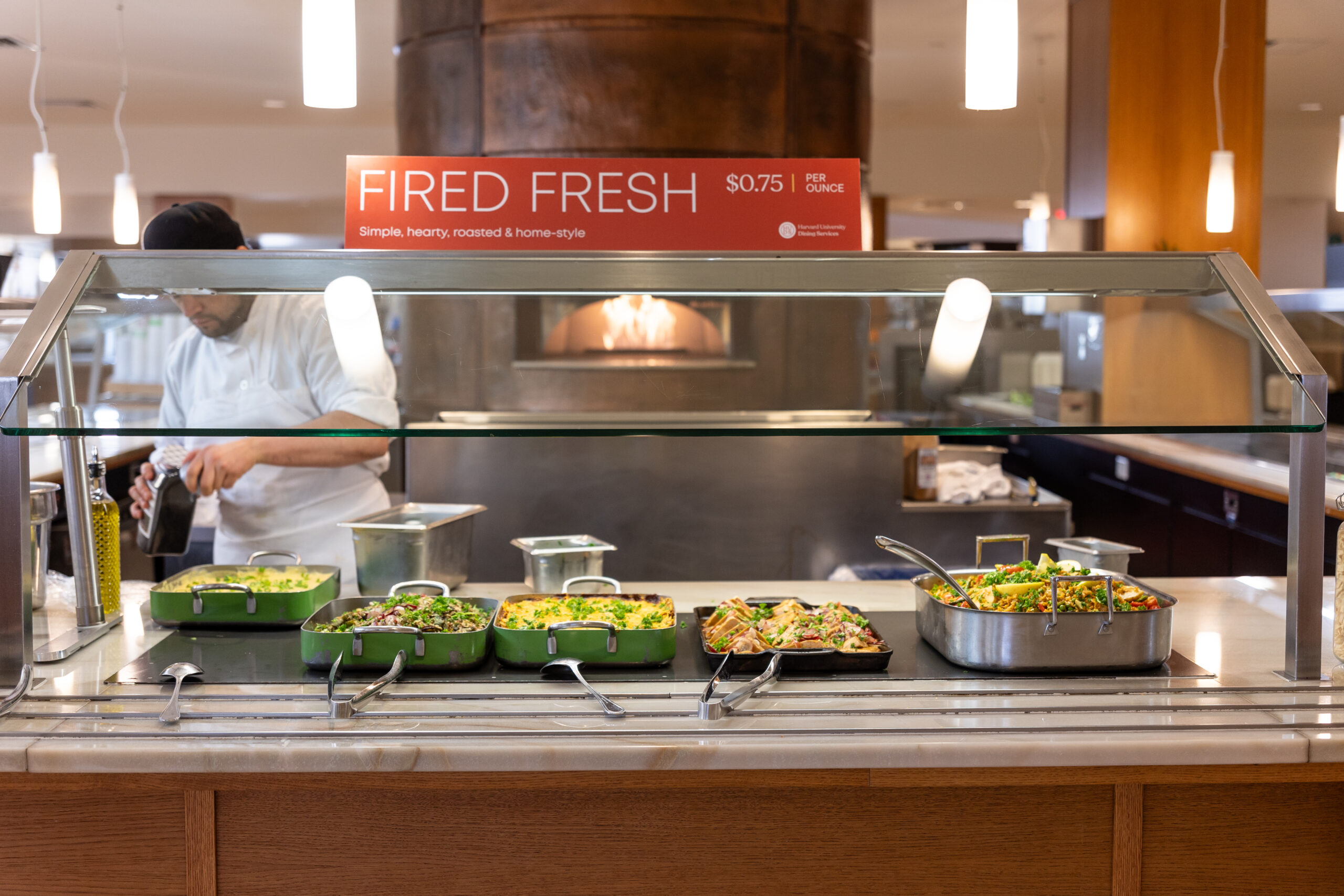
It has been five years since Harvard developed its Sustainable and Healthful Food Standards, which all four of the University’s major food vendors report into and follow. These standards guide and support vendors to make continuous progress in areas such as: climate and ecosystems, consumer wellbeing, education and food literacy, food waste reduction, animal welfare, and wellbeing of workers and communities along the value chain.
- Harvard won the Green Restaurant Association (GRA) Greenest University Award in both 2024 and 2025. Harvard has 19 Certified Green Restaurants® that have collectively taken more than 1,000 environmental steps to earn over 4,200 GreenPoints™.
- Delicious, Plant-Based Dining at Harvard Faculty Club (HFC): HFC is helping Harvard reduce its food emissions impact by expanding the array of delicious plant-based options. Guided by the World Resources Institute (WRI) Food Service Playbook, Executive Chef Rolando Abaquin crafted a plant-based menu that showcases diverse flavors, balanced nutrition, and fresh ingredients. Abaquin’s team makes almost everything in-house from scratch, enabling HFC’s culinary creativity and successful food waste reduction strategies like upcycling.

Delicious, plant-based dining at Harvard Faculty Club (HFC) from Executive Chef Rolando Abaquin’s plant-based menu.
- Harvard Office for Sustainability staff held three presentations to train Harvard Business School Restaurant Associates on the risks of PFAS and how to avoid them in dining, as well as waste avoidance and diversion in the kitchen.
- The Food 4 Thought Festival, held in April 2025, is a student-run event partially sponsored by the Harvard Office for Sustainability’s Student Grant program. The first-of-its-kind festival brings together students from around the world to envision the future of the food system. The 2025 event featured speakers, researchers, food vendors, field visits, a career fair and networking, and more.

- With funding from the President’s Administrative Innovation Fund (PAIF), Mather House piloted a reusable container program to leverage the technology and psychology of library book lending. The pilot supports Harvard’s Zero Waste vision by making it simple to take food to go from the dining hall in a more sustainable way. The program also aims to reduce the number of to-go containers – in the 2024-2025 academic year, HUDS used more than 630,000 compostable to-go containers in undergraduate locations.

19 Certified Green Restaurants®
Source: Harvard Gazette

2,270 Heat-N-Eats leftover meals
Source: HUDS Learning Report

630,000+ compostable to-go containers
Source: Sustainable Food Standards
Waste

10+ Freecycle events

15K items logged
Source: Harvard Recycle and Surplus Center

750+ first-time visitors
Source: Waste Wizard
Zero Waste Future
In 2025, Harvard launched “Accelerating a Zero Waste Future: A Framework for Waste Stewardship,” a new plan to transition our campuses to zero waste. Developed by the Waste Stewardship Steering Committee in collaboration with University leaders, the framework prioritizes waste prevention, reduction, reuse, and responsible recovery, and aligns with Harvard’s Sustainability Action Plan.
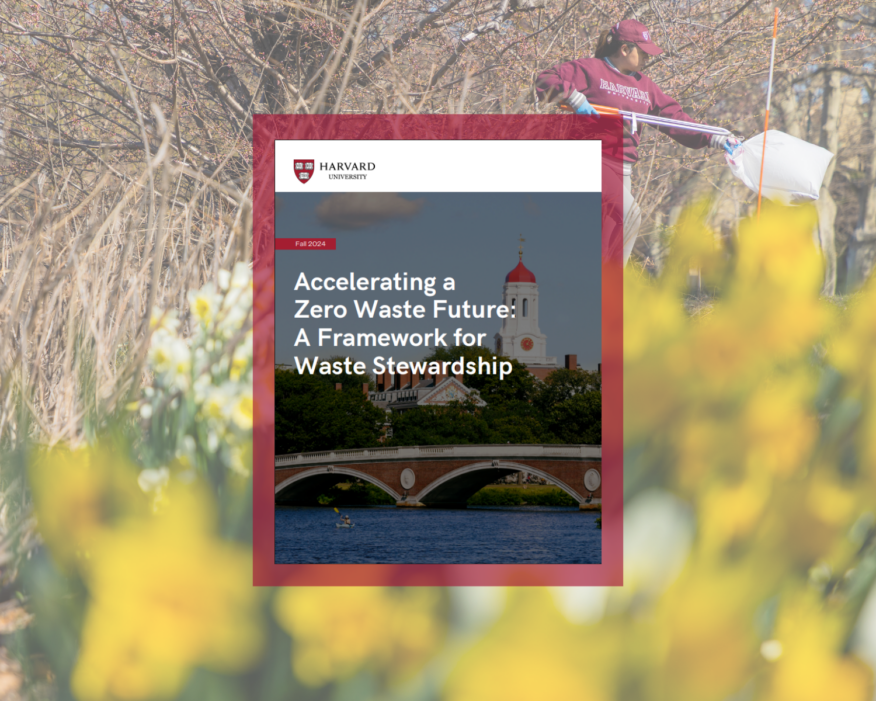
Commuting, Sustainably
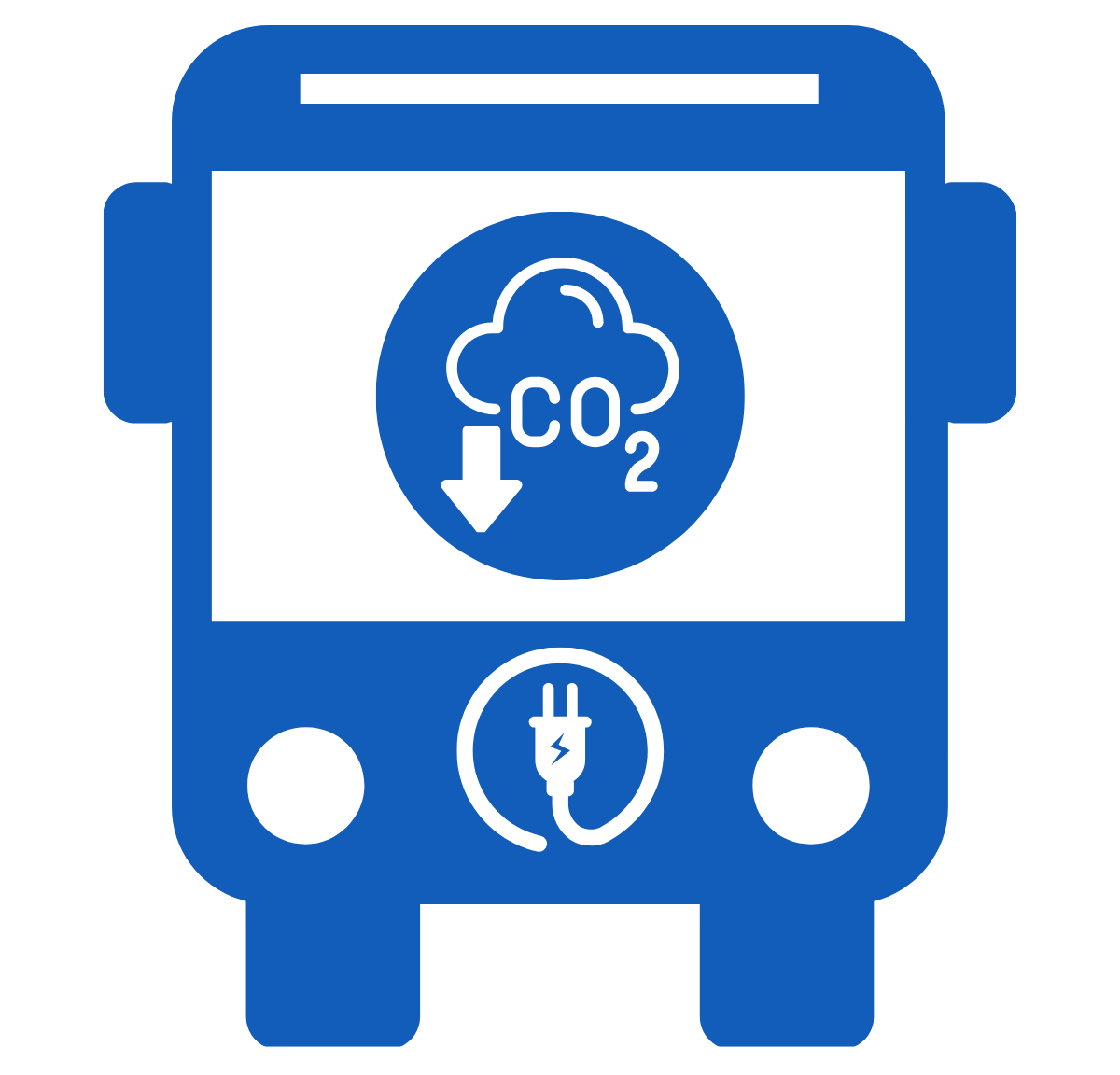
18 total University-owned electric vehicles

4,600+ average monthly MBTA passes held by commuters

20 new EV charging stations
Water

1.5 million gallons of water reduced annually by Harvard University Dining Services

2.5 million gallons of water captured in rainwater tanks

More than 60% of water sensors are ‘smart’ sensors
Sustainably Managing Stormwater

The site of the new David Rubenstein Treehouse Conference Center is engineered to manage stormwater including an integrated series of landscape features including stormwater gardens, bioretention swales (that capture storm water), plantings, cisterns, and permeable paving. Urban-scale bioswale and bio-classroom visibly manage stormwater with vegetative treatment. Subgrade stormwater recharge tanks, permeable paving, tanks, and bioswales work together to store the first 2.75” of rainfall on site, significantly reducing runoff to the Charles River.
Landscaping

100+ pieces of electric landscaping equipment

85-90% native plant species

5,000 trees
Rewilding the Landscape at Harvard Business School
In the two years since a small section of the HBS landscape was rewilded as part of a pilot project, the site has begun to flourish with native and pollinator-friendly plantings. Developed in partnership with the 2022 FAS course HIST 1973: Re-wilding Harvard, HBS Operations, Reed Hilderbrand Landscape Architecture, and Cambridge Landscaping, this site—an island in a parking lot—was designed to serve as a visible and ecologically impactful “steppingstone” connecting other green spaces around campus. This rewilding pilot is part of a broader initiative by HBS to support biodiversity, with additional projects including pollinator-friendly Alyssum along Harvard Way, and new pollinator plantings from recent and future landscape projects.
How We Lead
Harvard’s world-class faculty, researchers, and staff are prioritizing sustainability through important academic research and teaching, as well as projects and ventures that explore innovative sustainable solutions that can be piloted on our campus and scaled locally and globally to address climate action.

Leading & Collaborating at Harvard and beyond
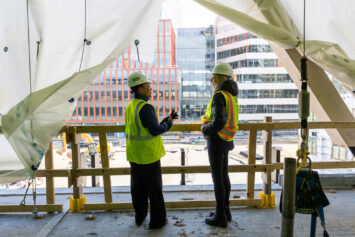
Research & Teaching at the Salata Institute
The Salata Institute for Climate and Sustainability is working to ensure that a Harvard education prepares students for leadership in a world facing climate change. Through programs and activities developed in coordination with Harvard’s schools, students have opportunities to contribute to climate solutions today, while learning valuable skills and developing professional connections for tomorrow.

360 students
Source: Learn more about the Student Activities Fund

11 students
Source: Read COP29 student reflections

46 internships
Source: Learn about the Salata Climate Policy Summer Internship Program
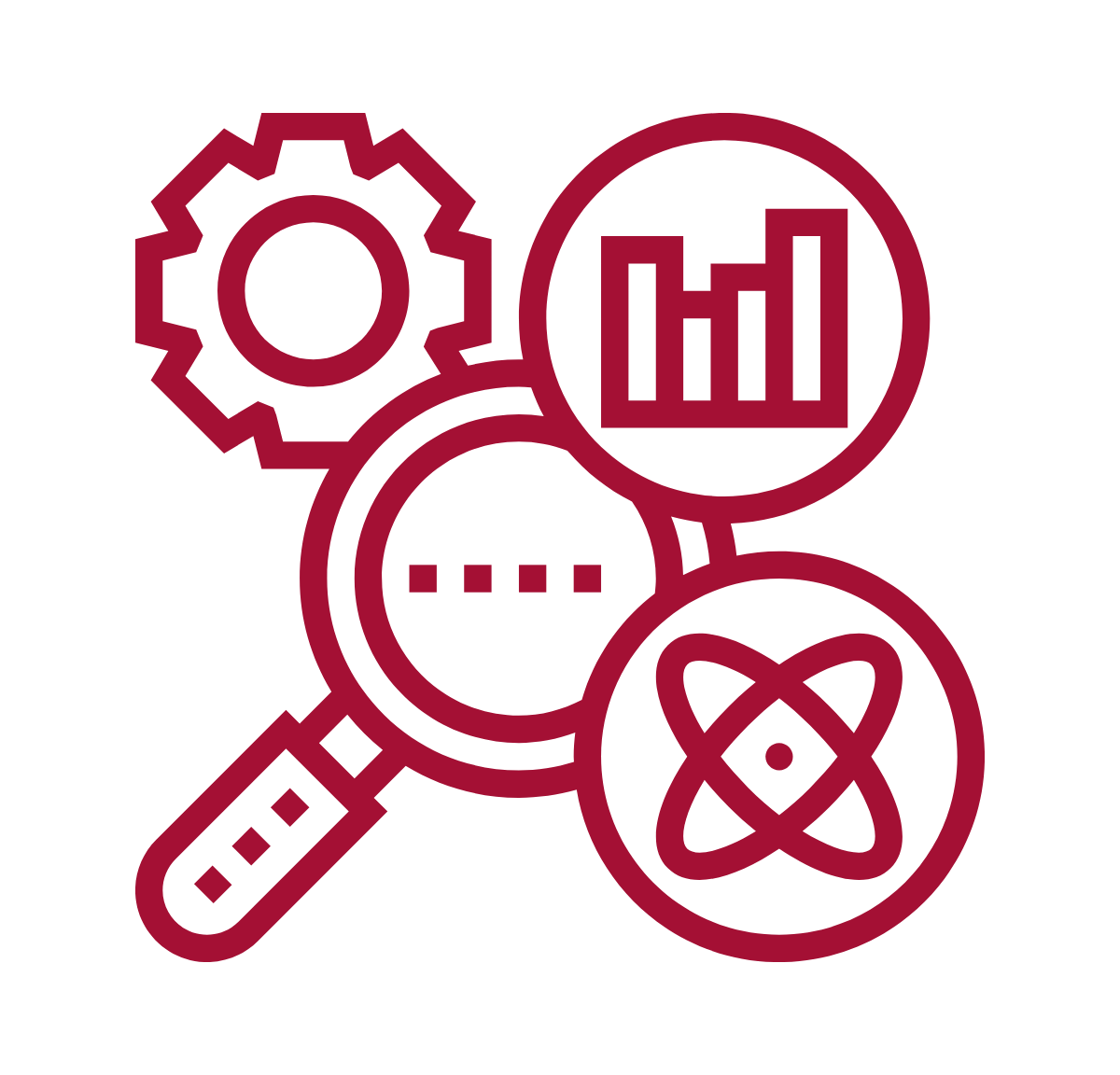
37 projects
Source: View all new seed grants awardees in 2024

7 Clusters
Source: Explore all research clusters

90+ hours of talks, lectures, conversation
Source: Visit the Salata Institute's YouTube
Harvard i-Lab
Funding Innovative Climate Ventures
The Climate Entrepreneurs Circle through Harvard i-Lab is a selective incubation program for high-potential ventures working to address climate change. The Climate Circle has 97 Harvard-led ventures incubated to date, which tackle a wide array of global challenges. Venture topics include decarbonizing real estate, building predictive agriculture with AI-powered gene expression technology, scaling solar energy technology, climate finance, and much more.
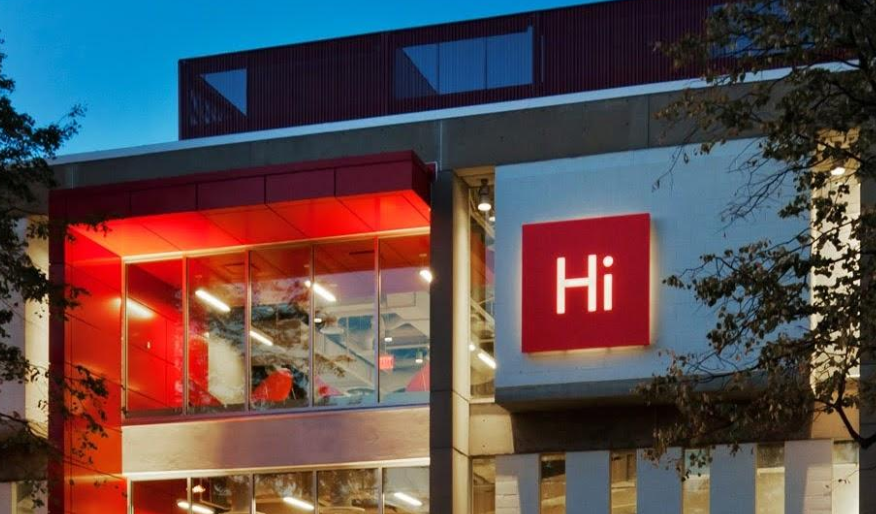
Student Engagement
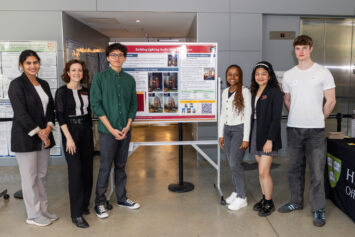
Earth Month 2025
Managed by OFS and Common Spaces, Earth Month at Harvard includes a celebration at Science Center Plaza with tabling, Freecycle and recycling events, secure IT disposal, bike repairs, plant-based food trucks, and a Charles River Clean-Up hosted by the Harvard Kennedy School in collaboration with Harvard Office for Sustainability, Harvard Business School, and the Charles River Conservancy. View photos from 2025 Earth Month at Harvard:
About the Harvard Sustainability Report
The 2024-2025 Harvard Sustainability Report was produced by the Harvard Office for Sustainability (OFS) to update our community on the University’s progress toward meeting the goals, standards, and commitments as described in the University’s Sustainability Action Plan. Data is collected from individual Harvard Schools, Units and aggregated and analyzed by OFS.
The Harvard Management Company reports on the University’s endowment. Harvard Financial Administration posts the Annual Financial Report. Learn more about the Office of Community and Campus Life. The Office for Institutional Research & Analytics produces the Harvard Fact Book, which presents a wide range of data regarding the University’s organization, people, and resources.
View snapshots of past Annual Sustainability Reports:
